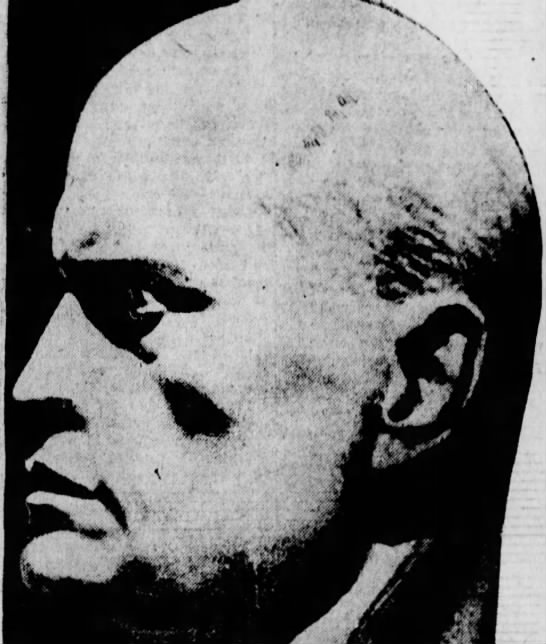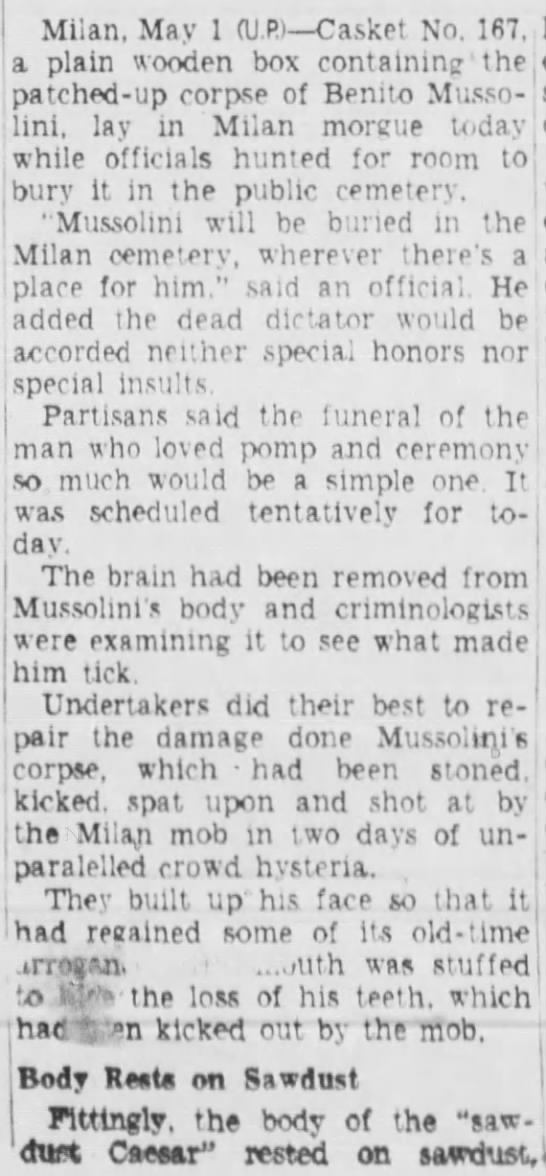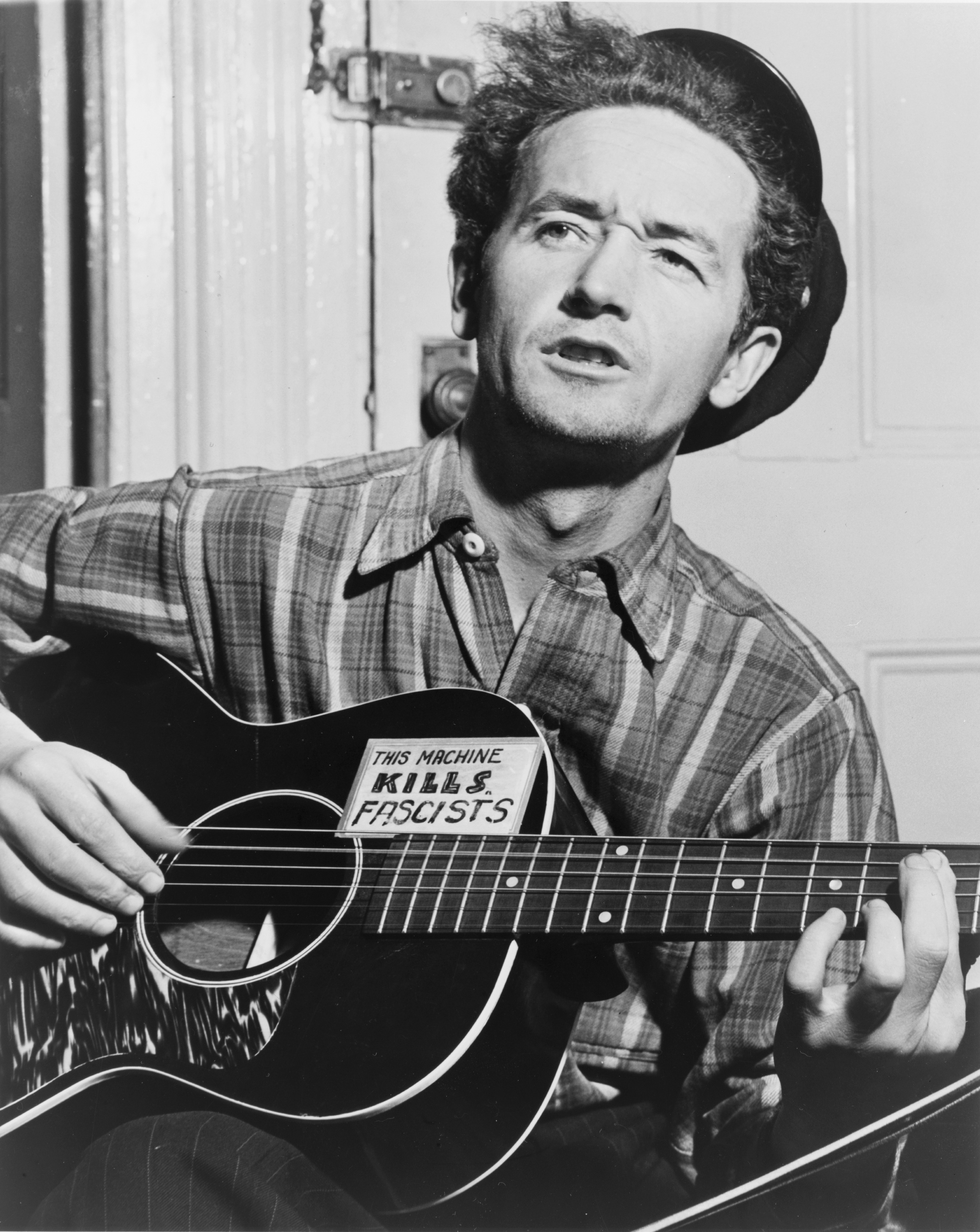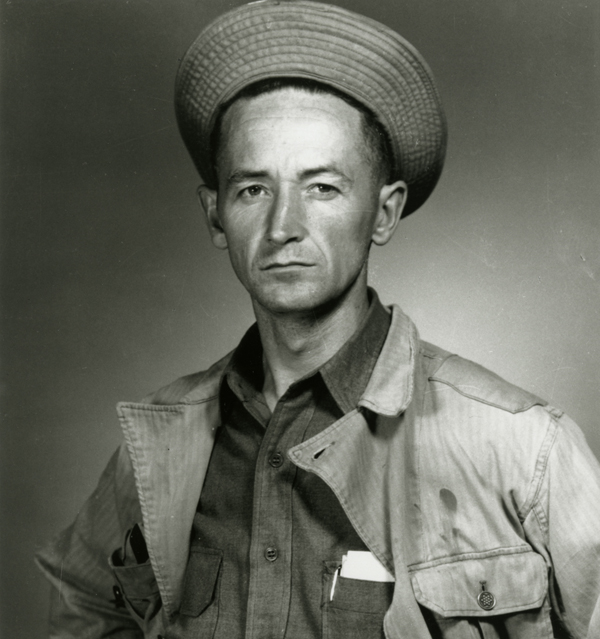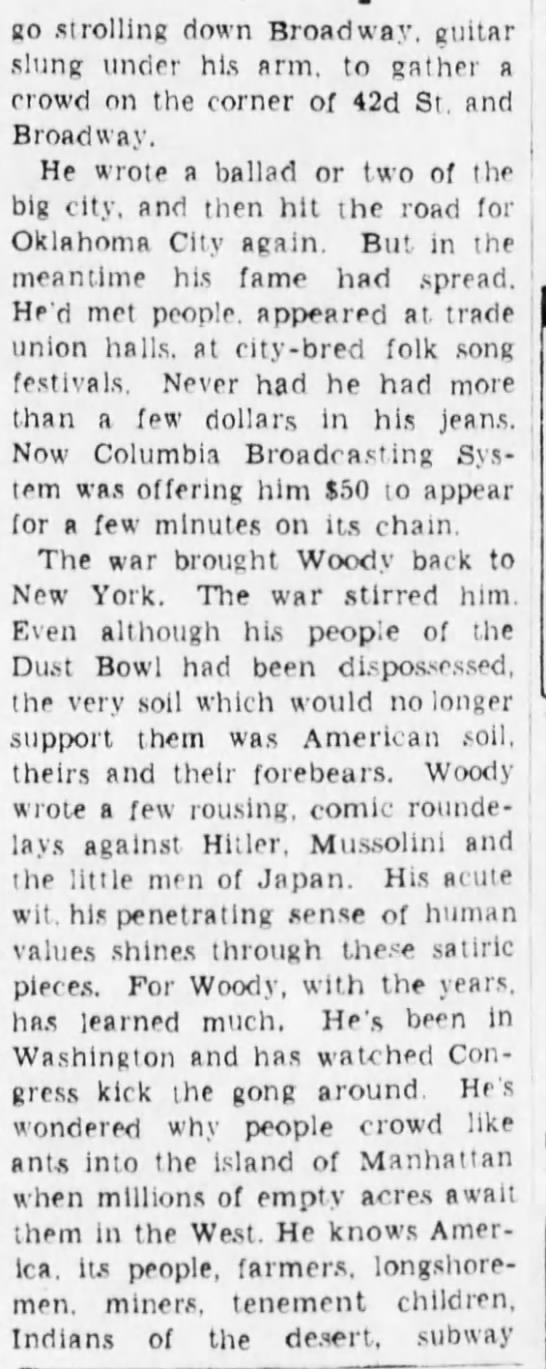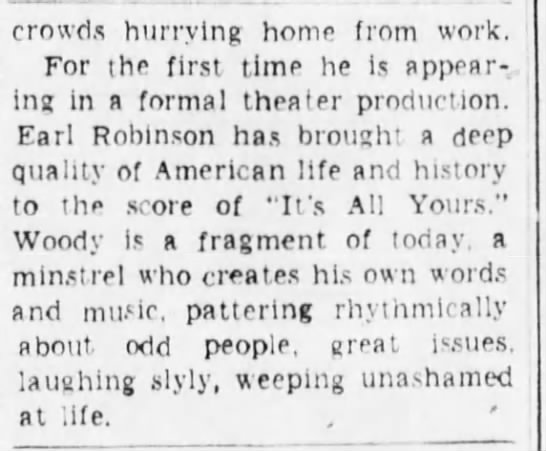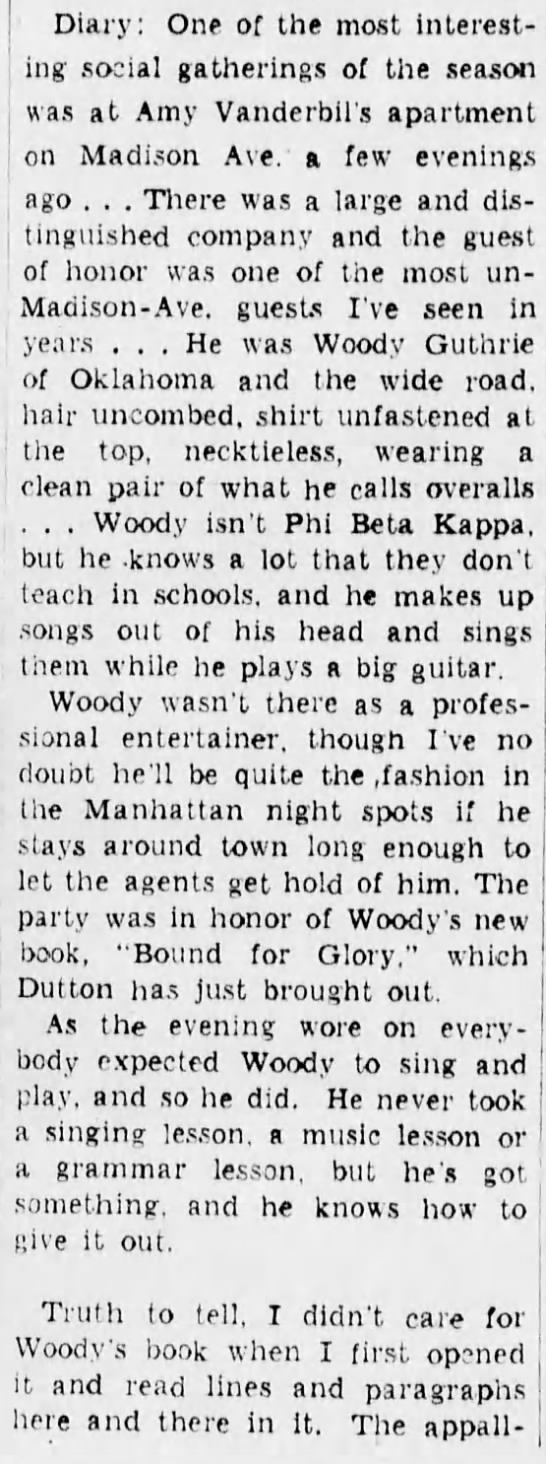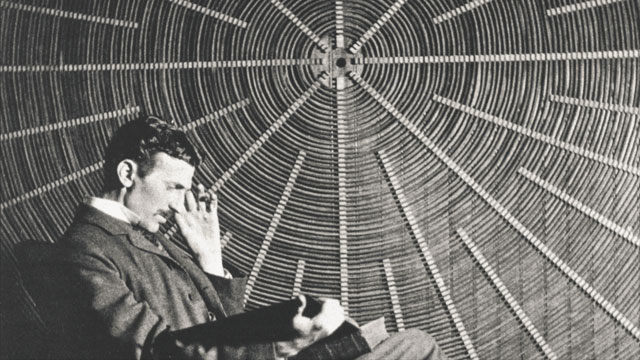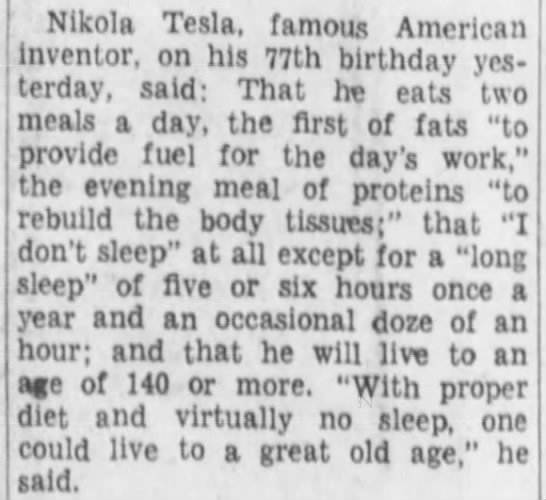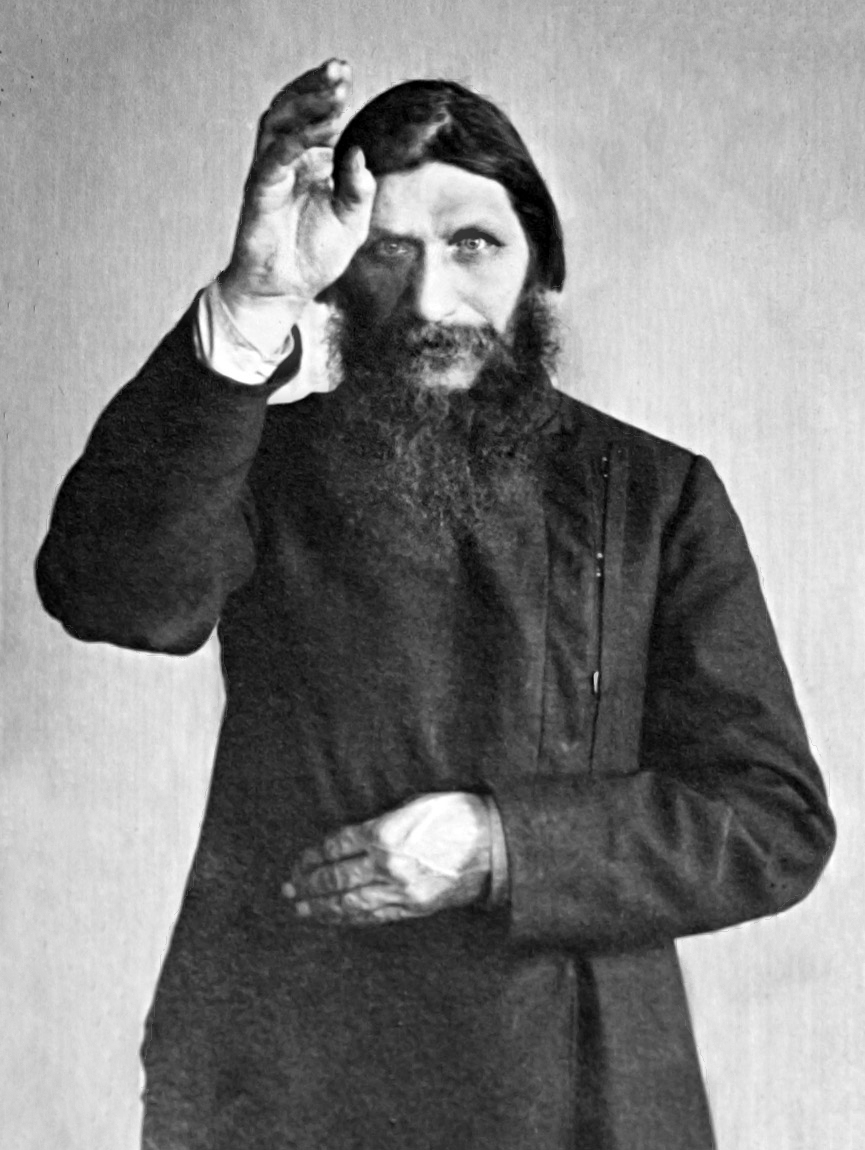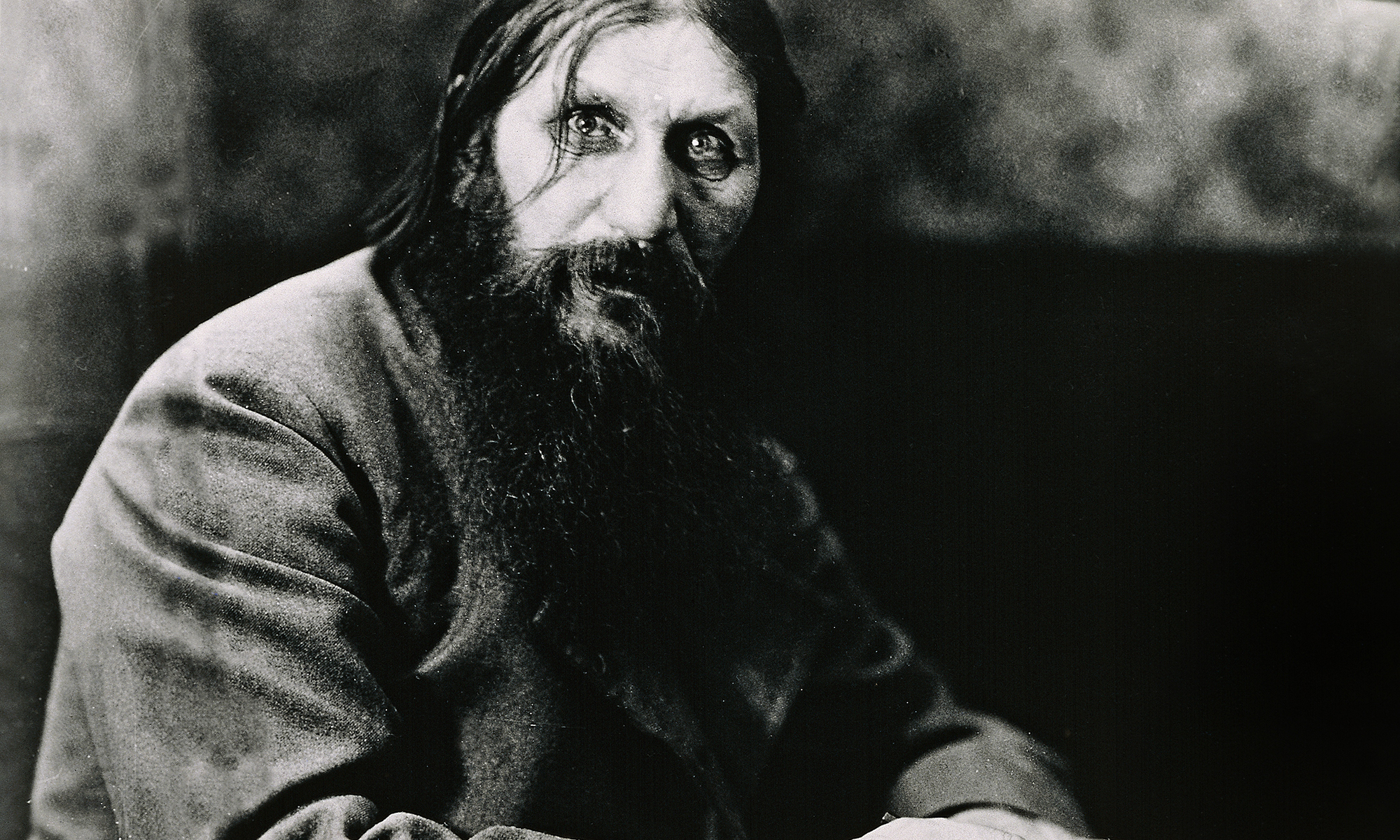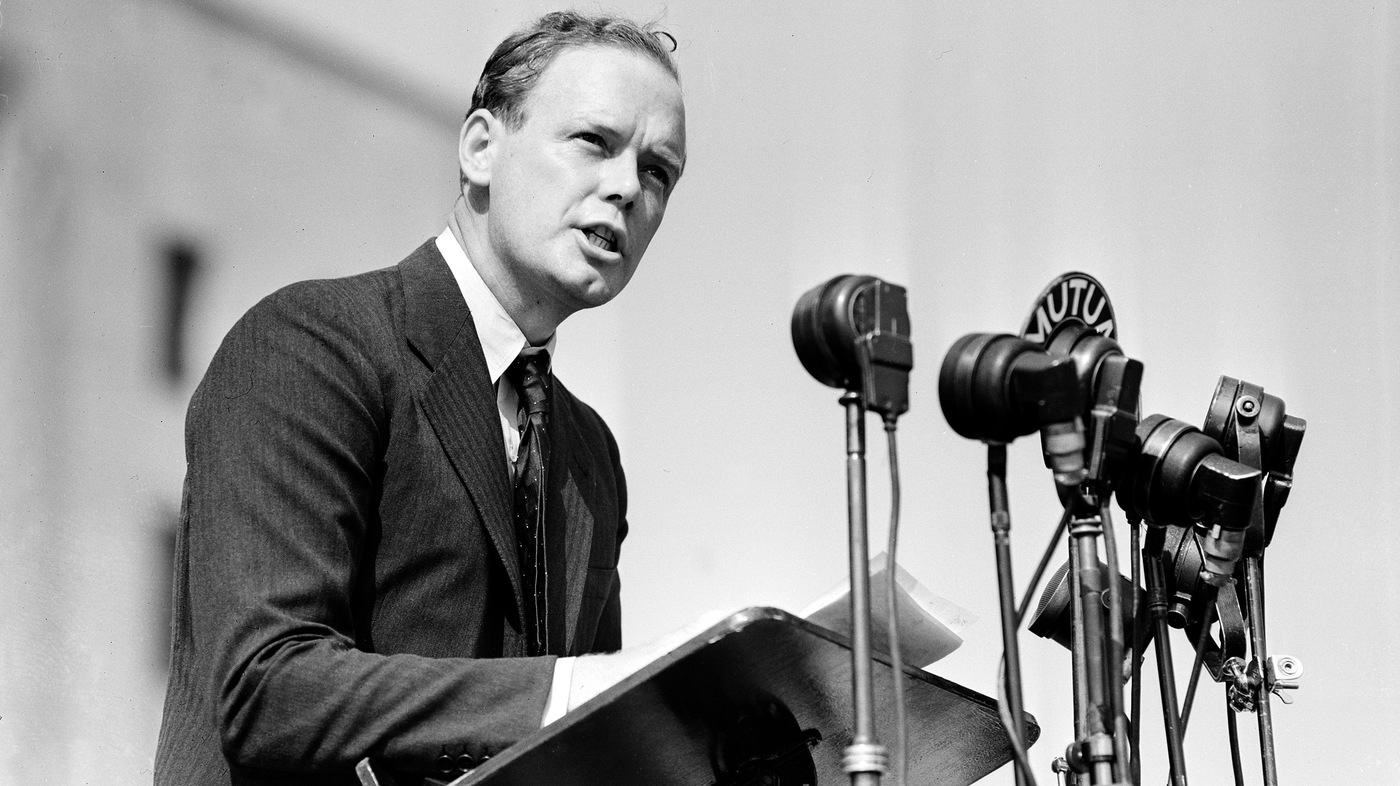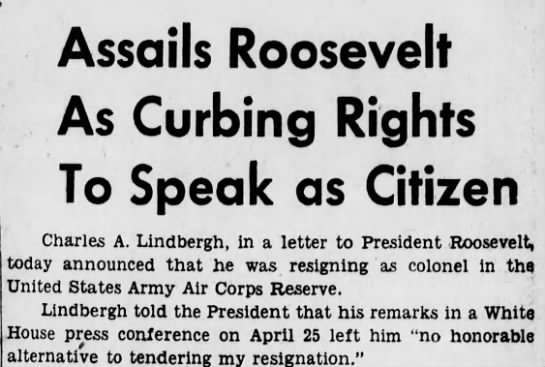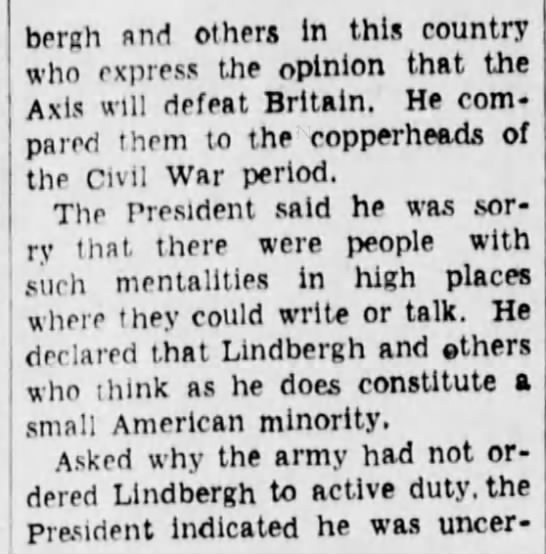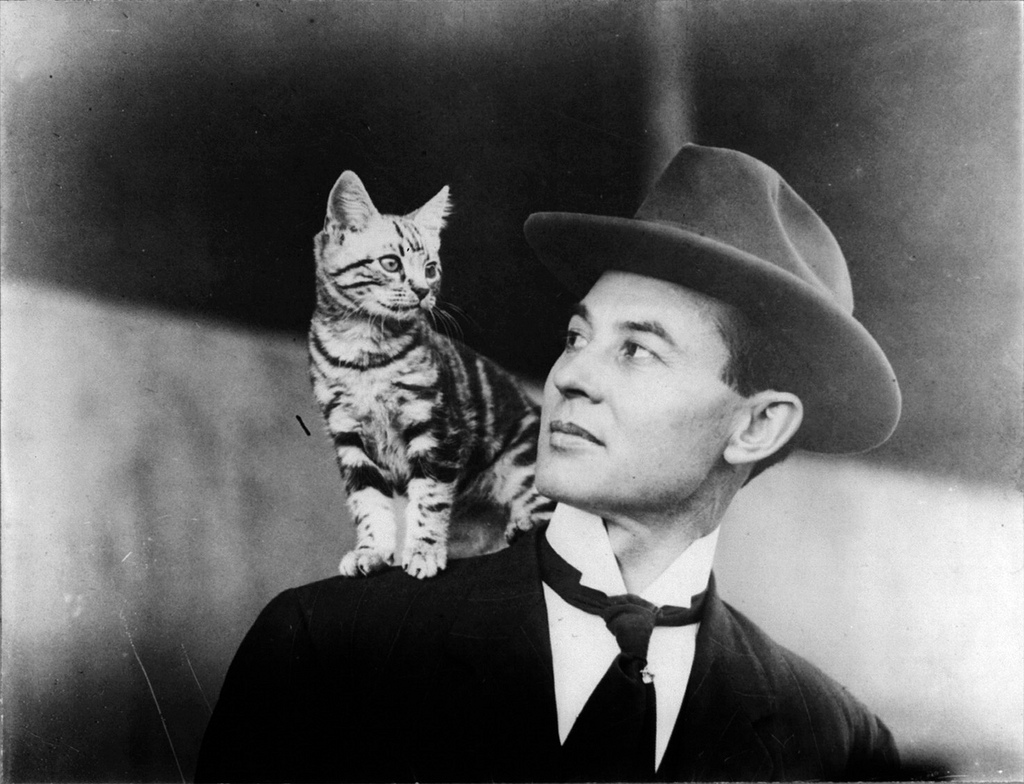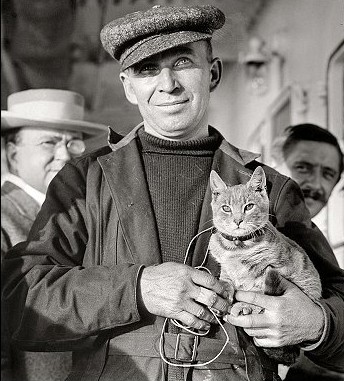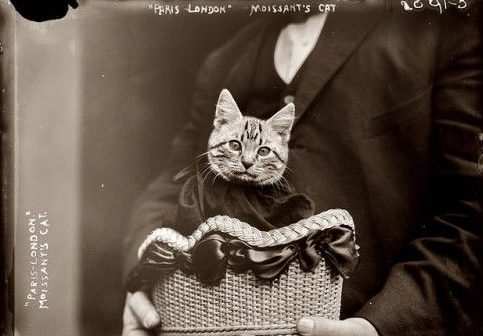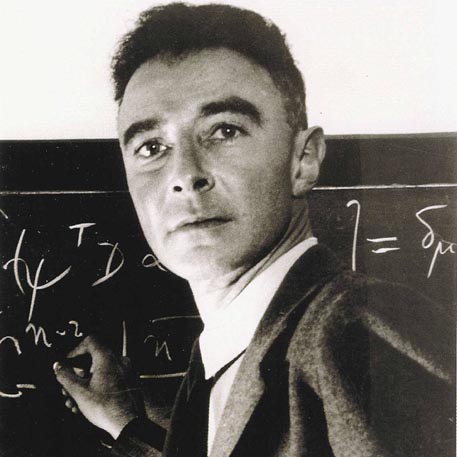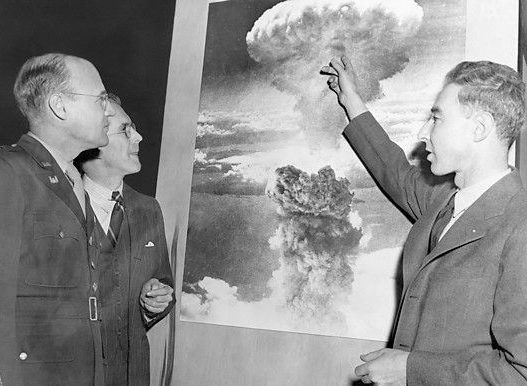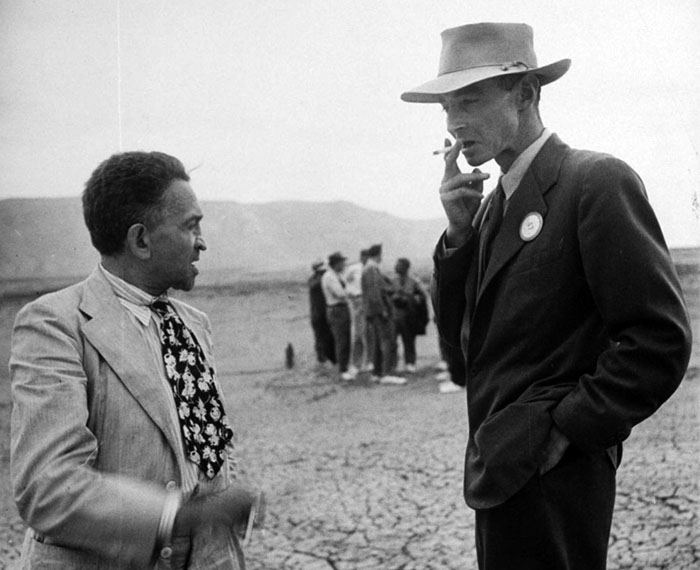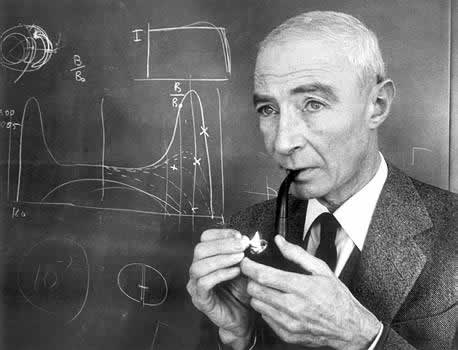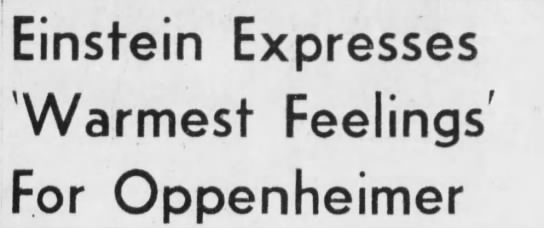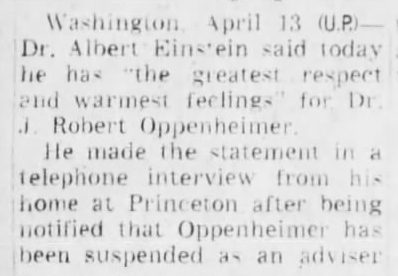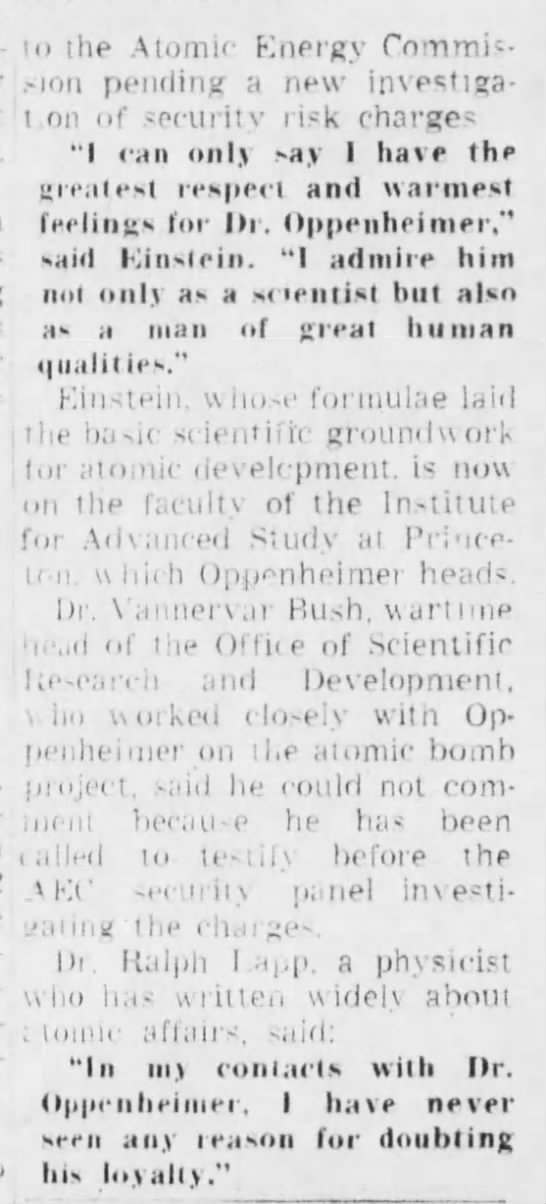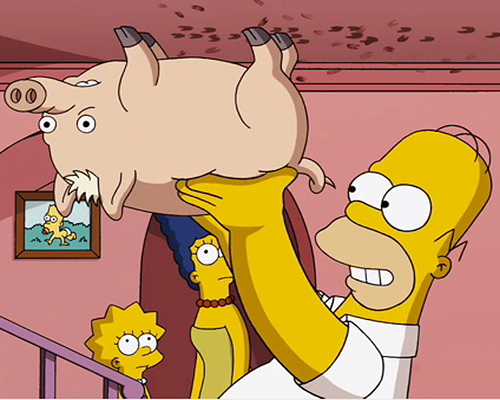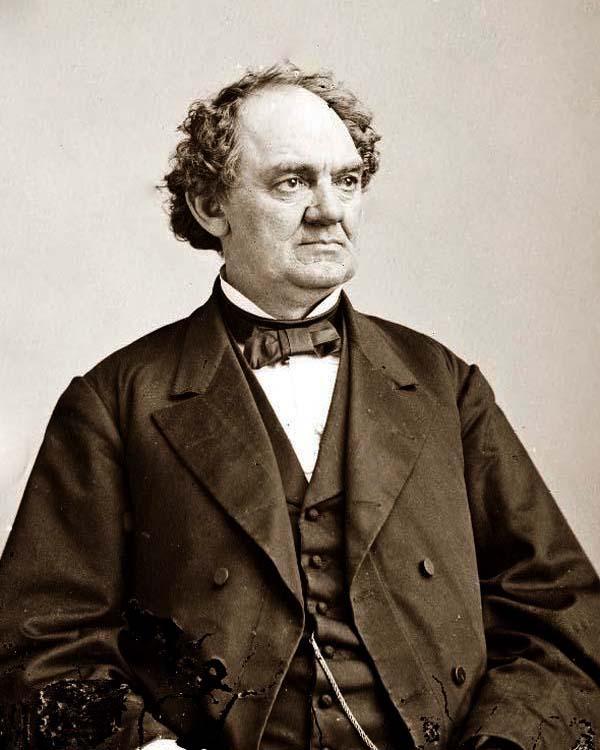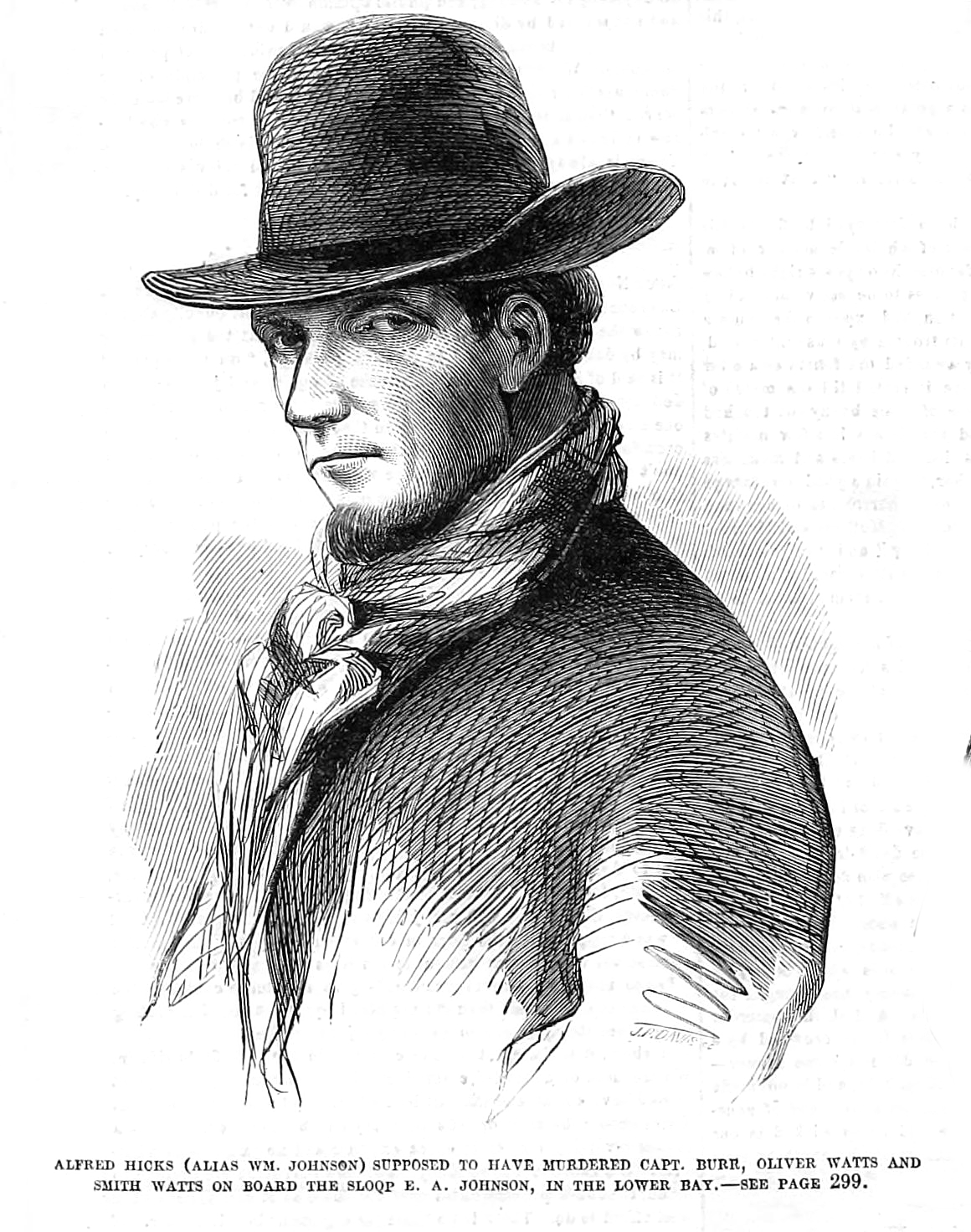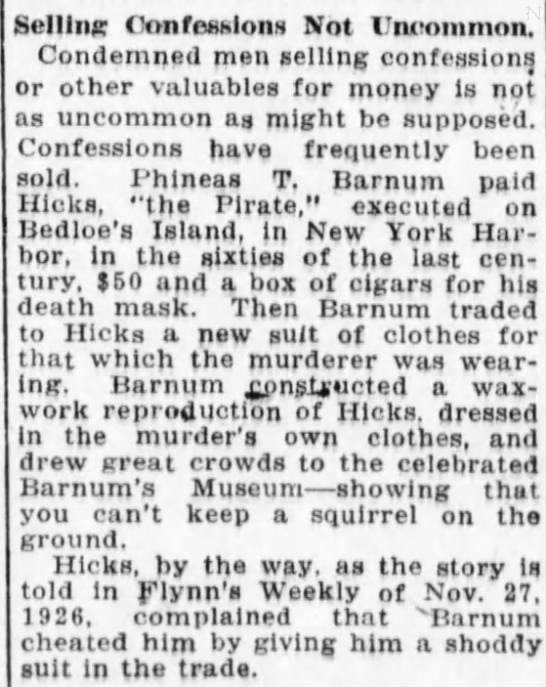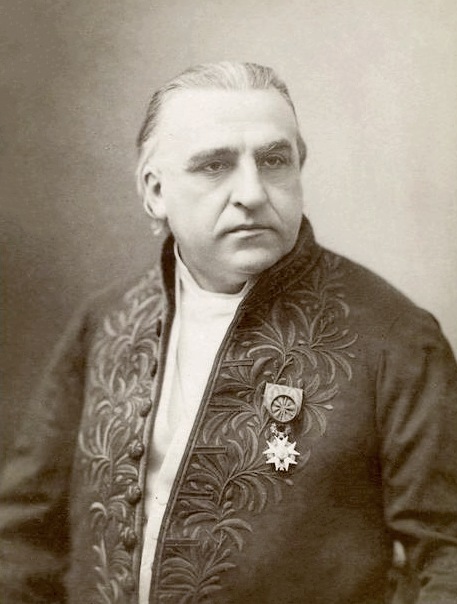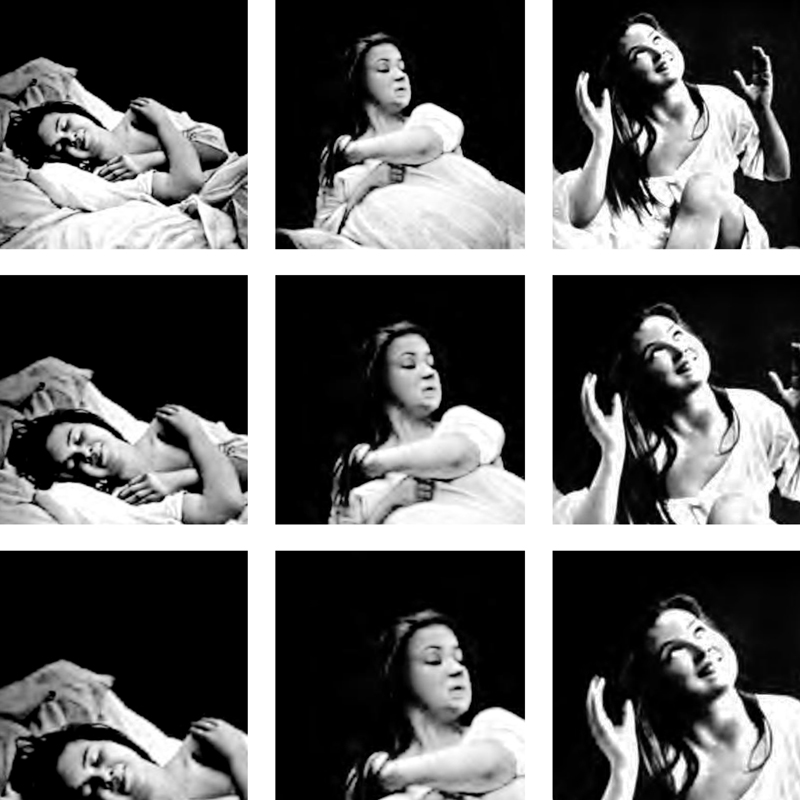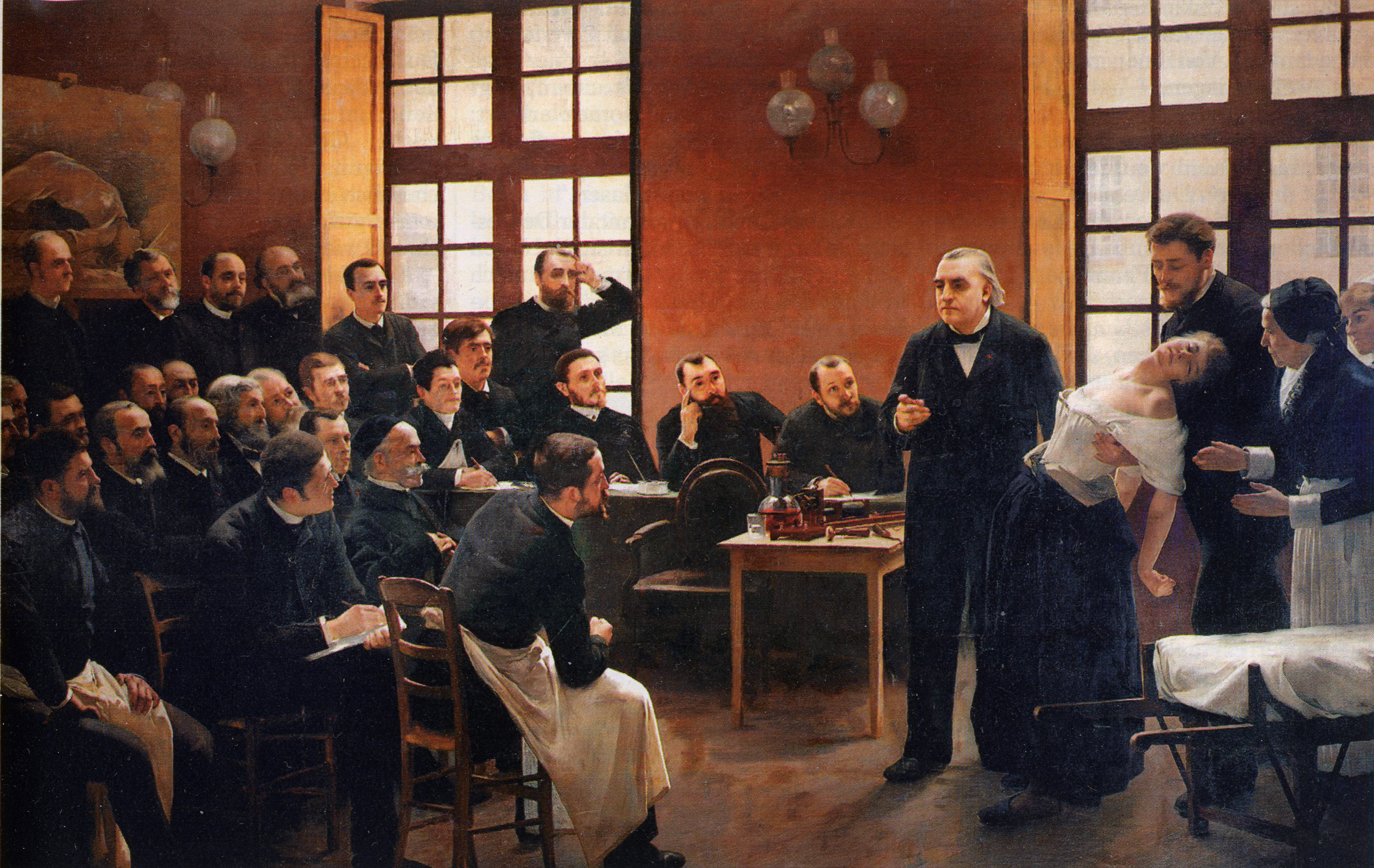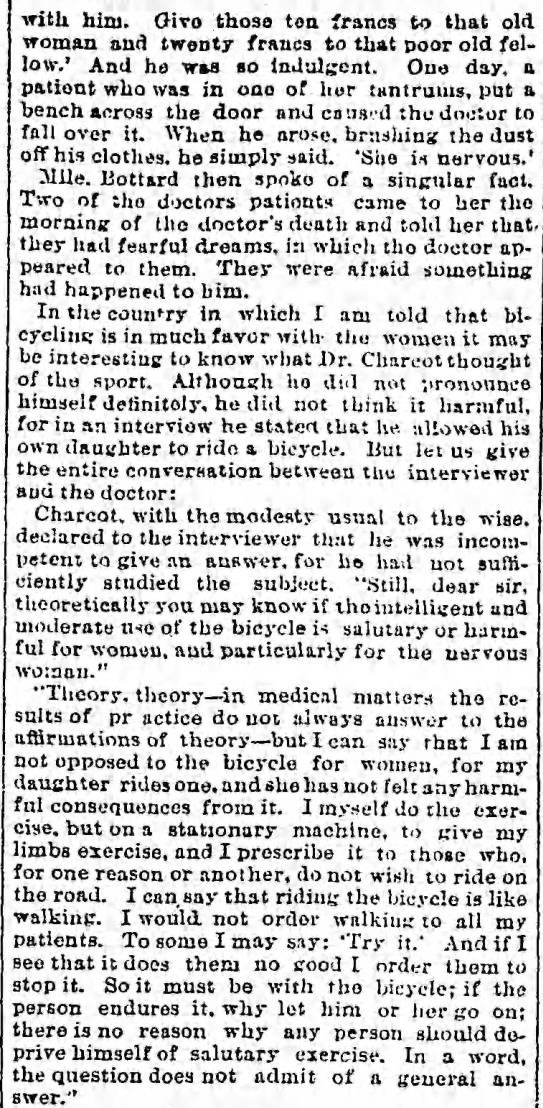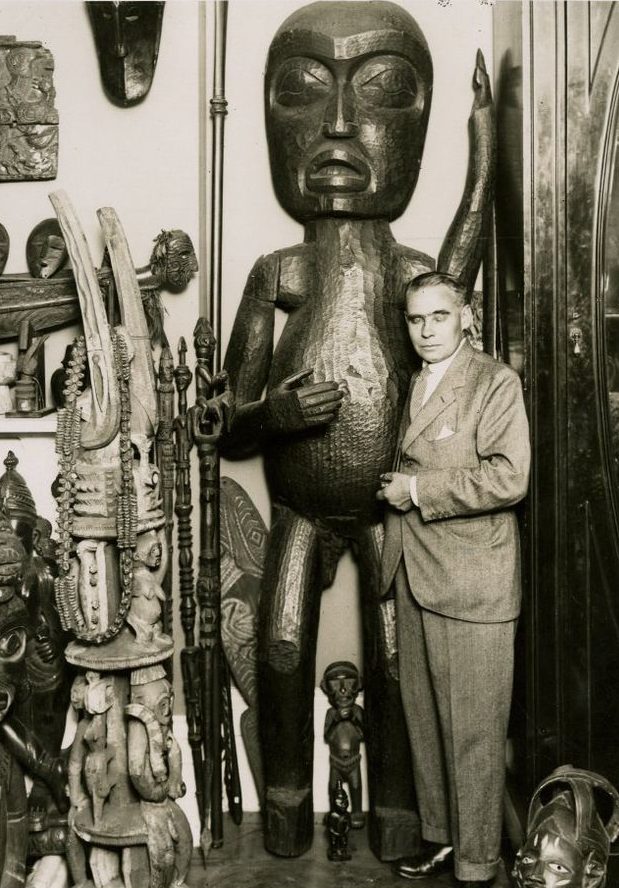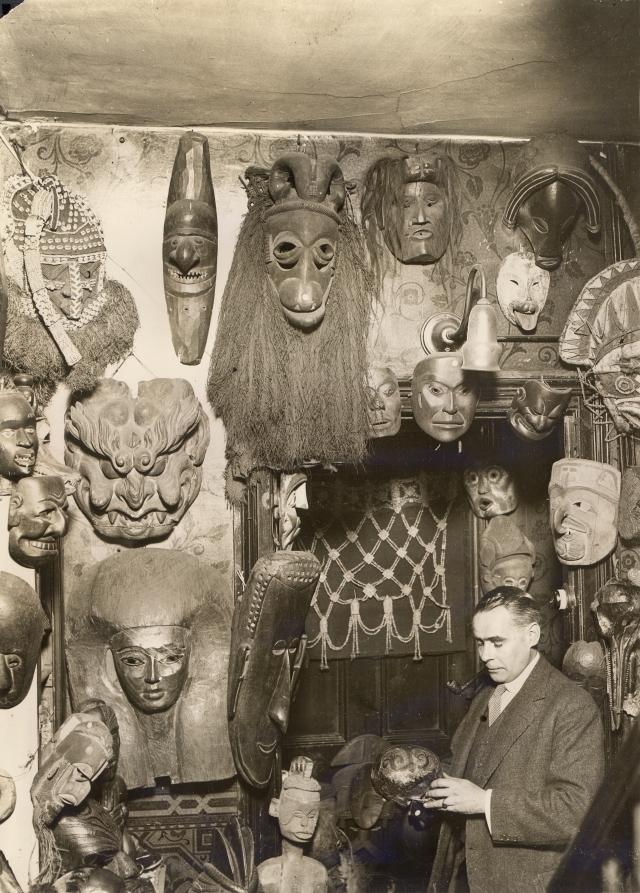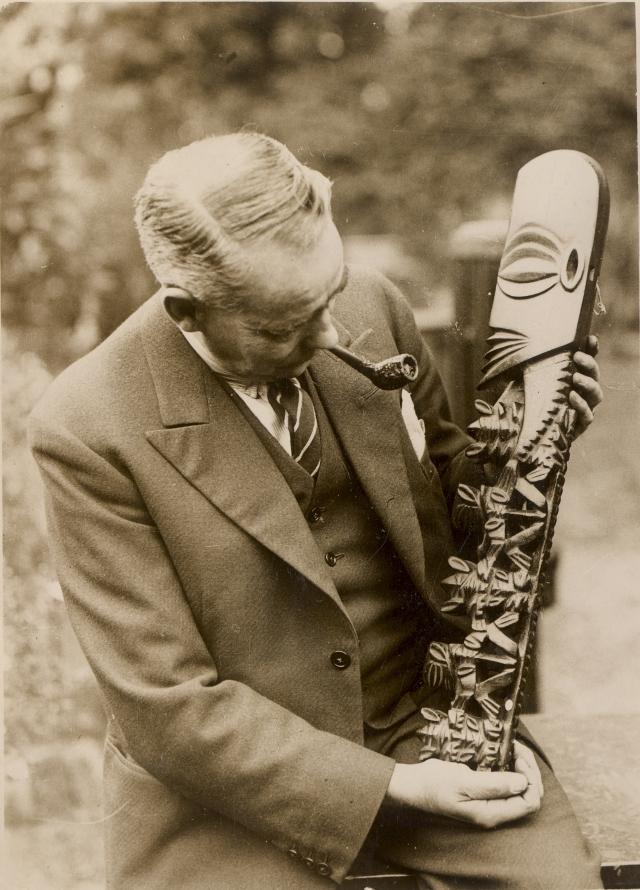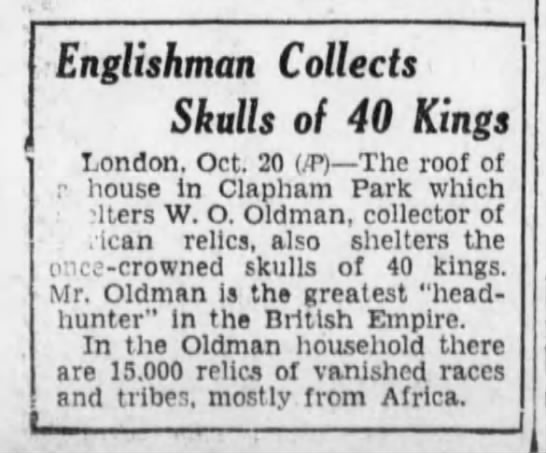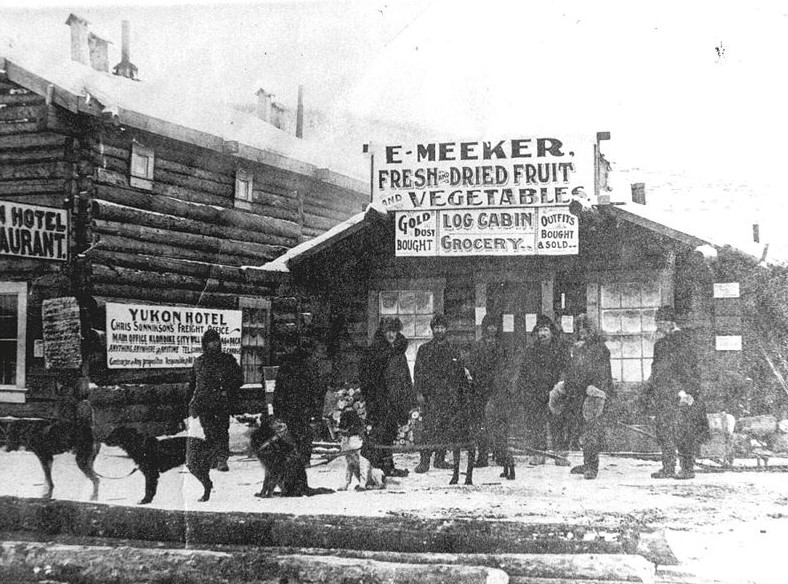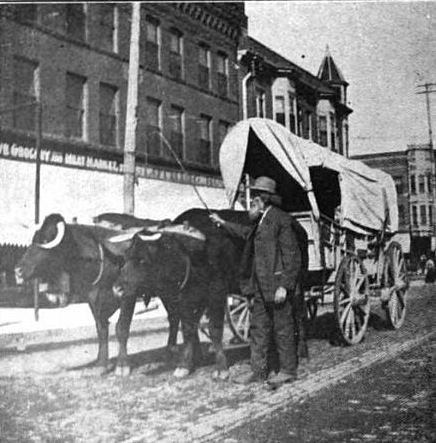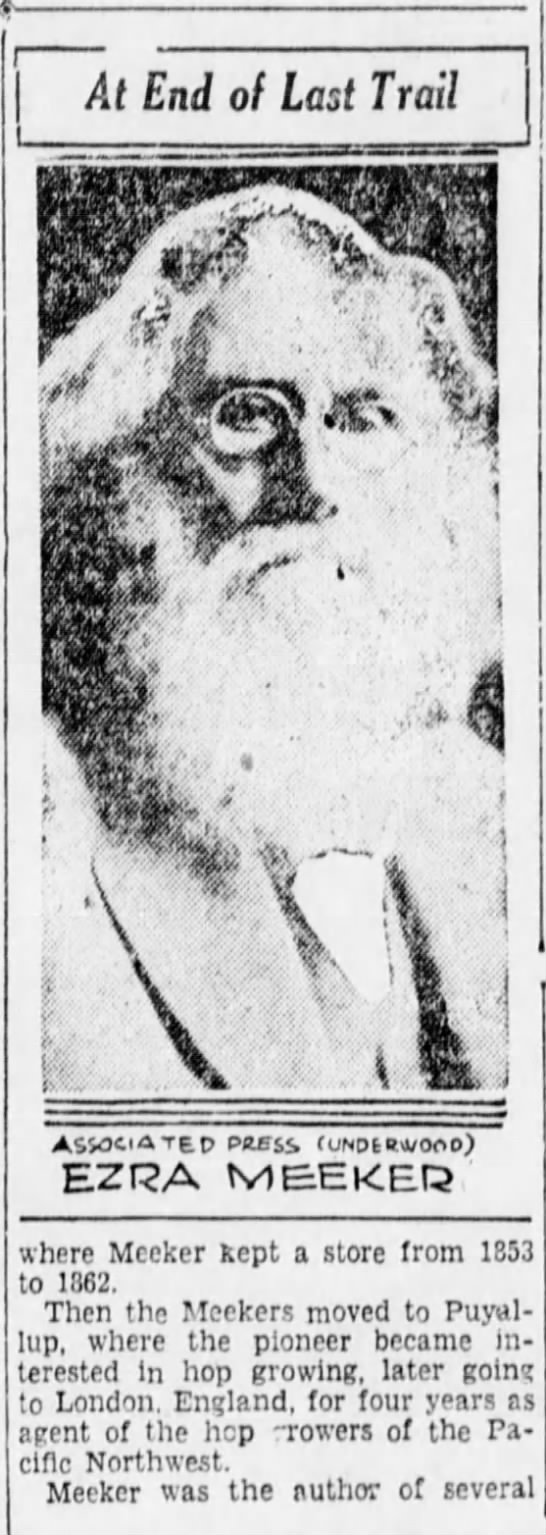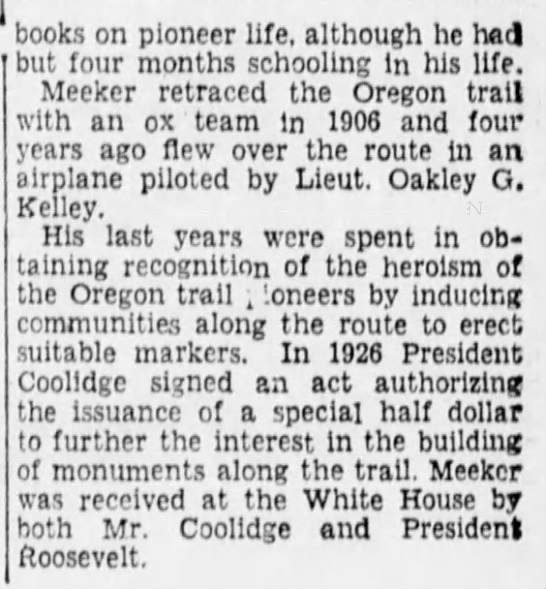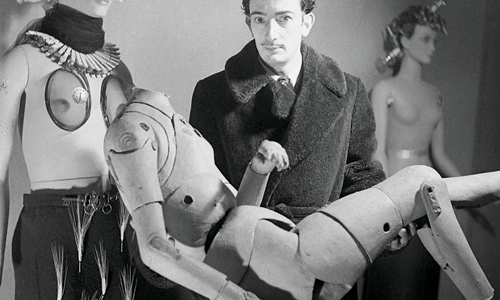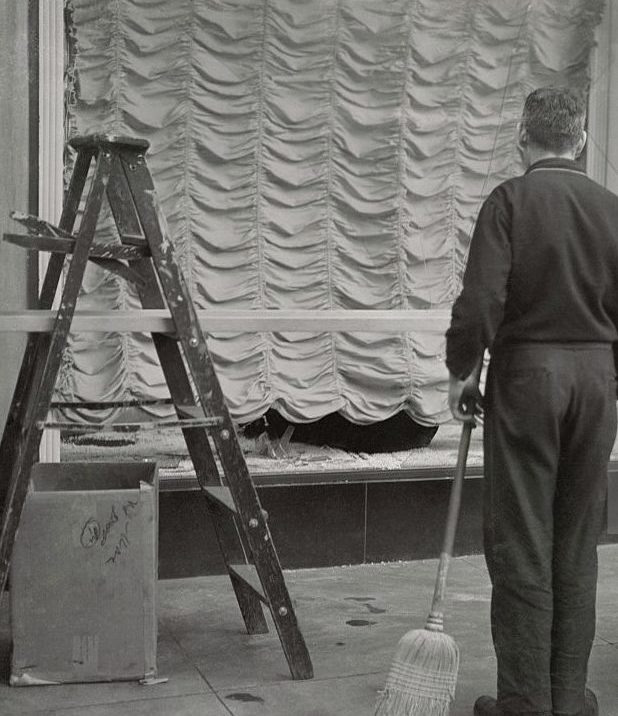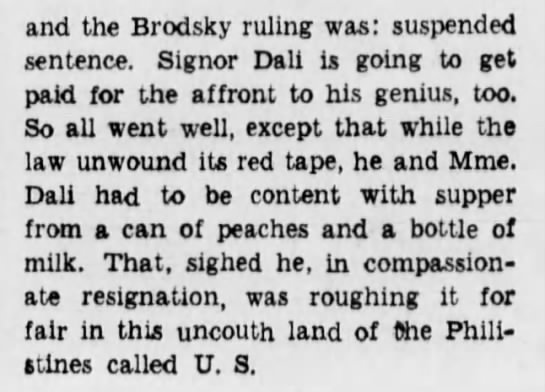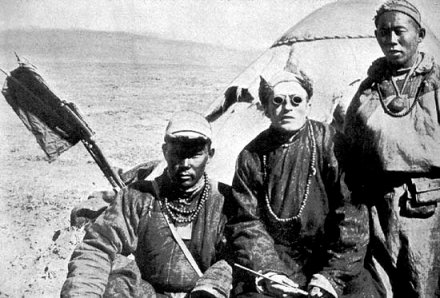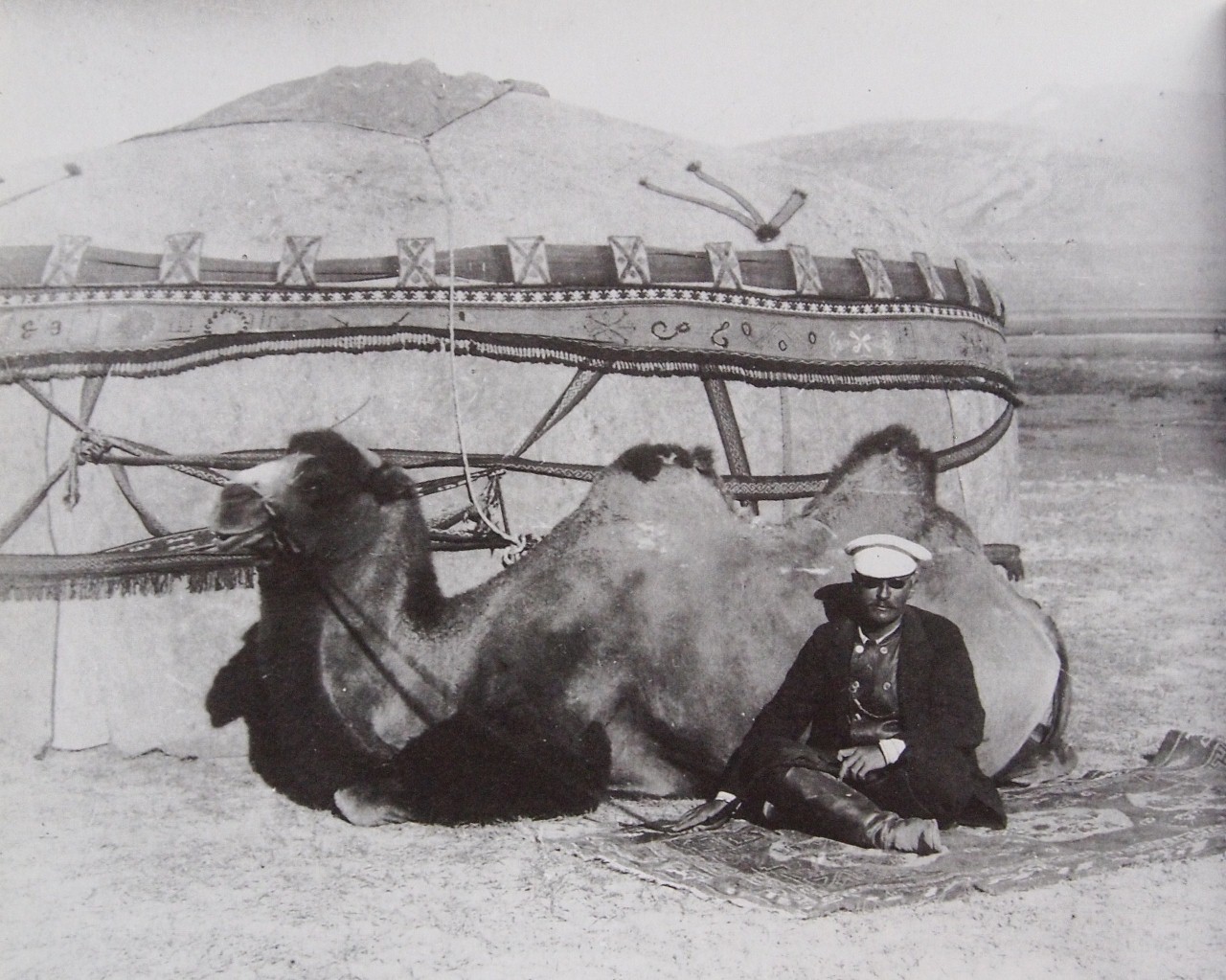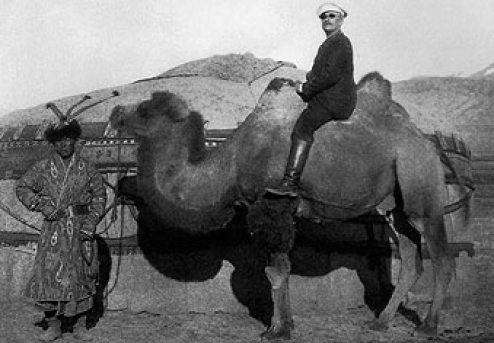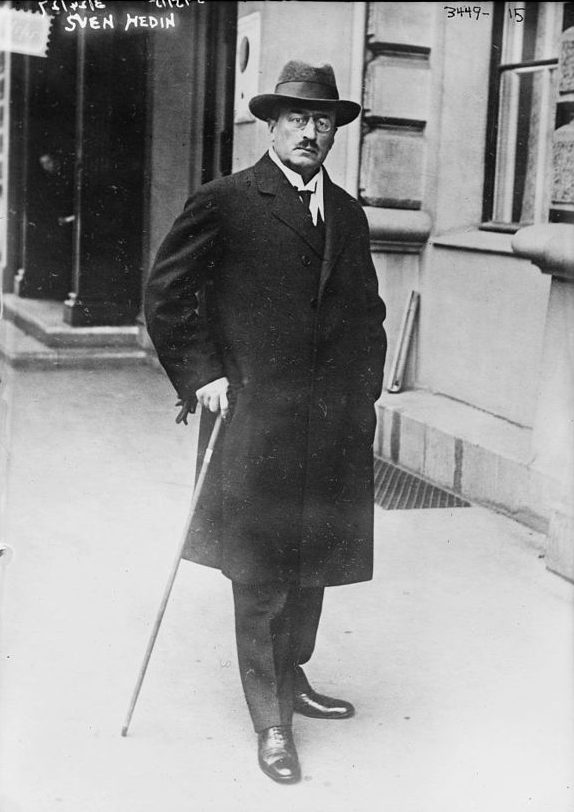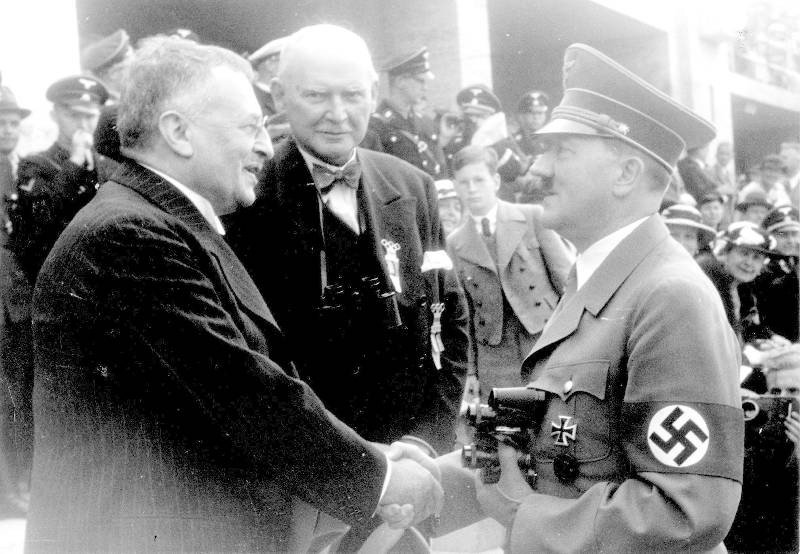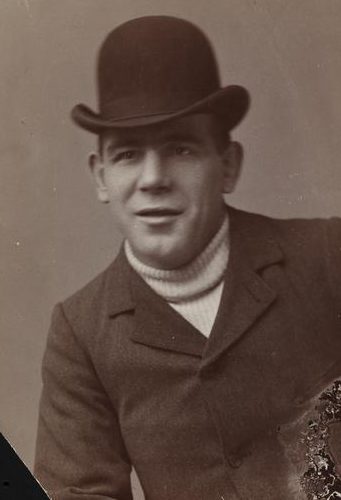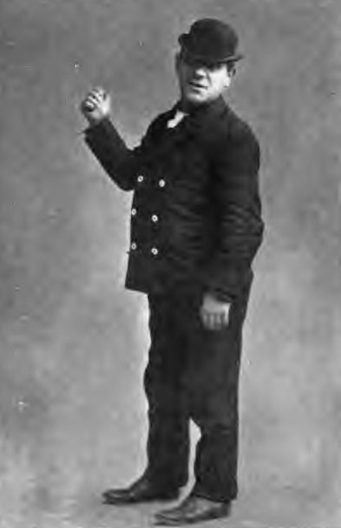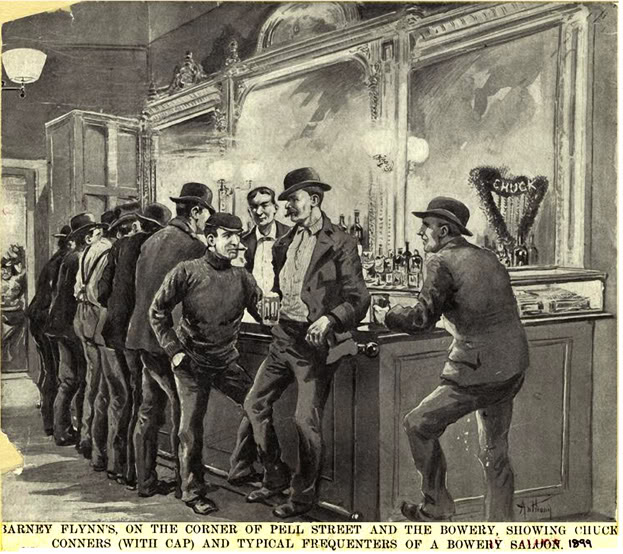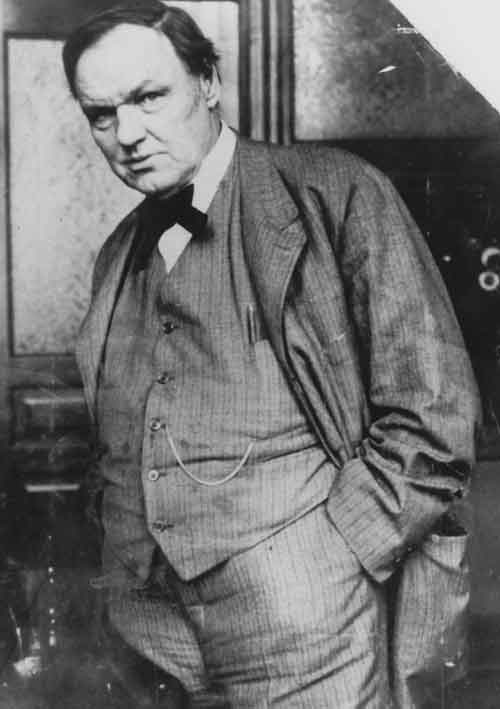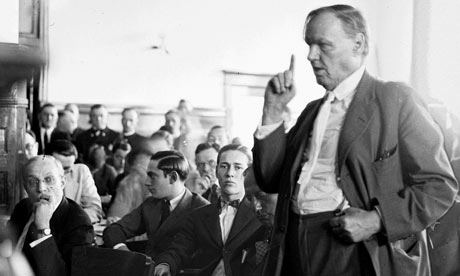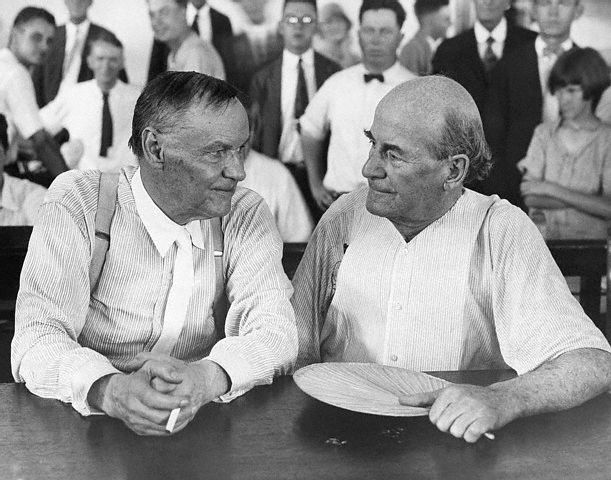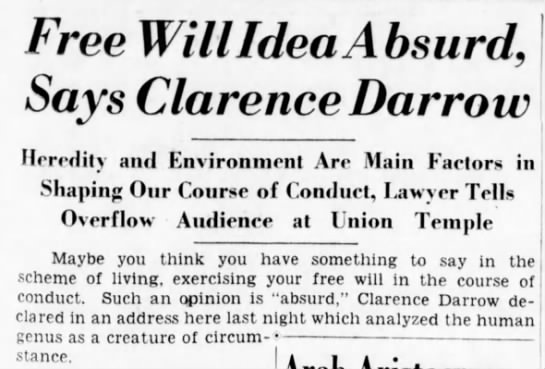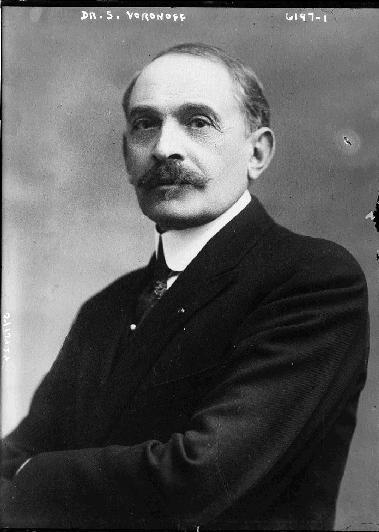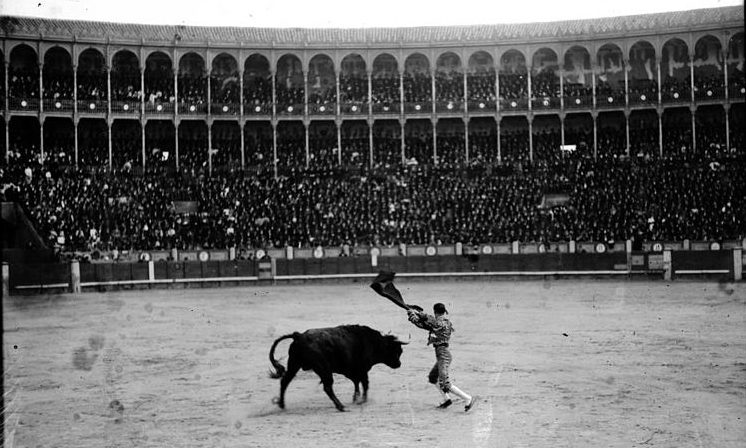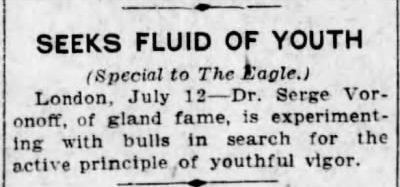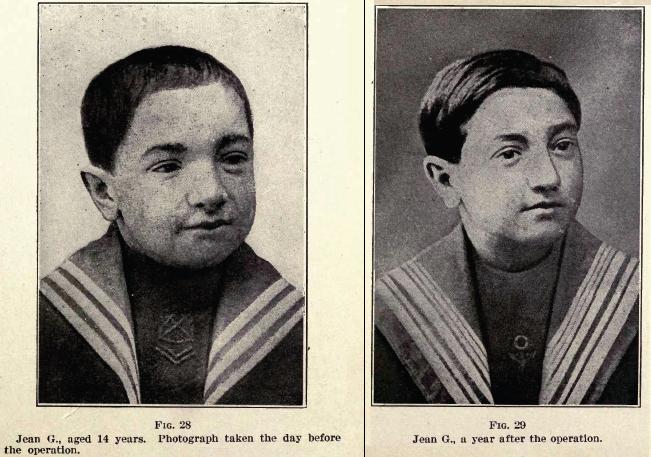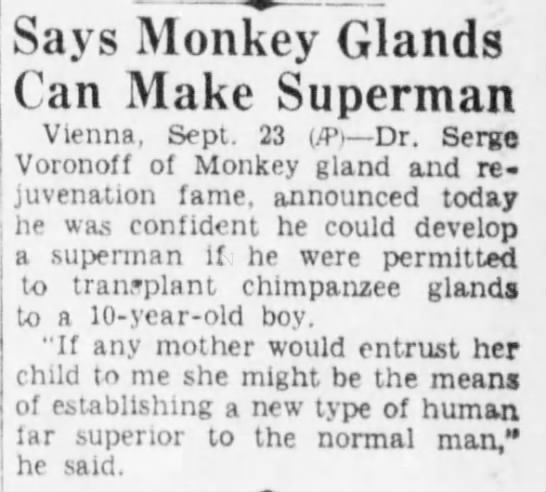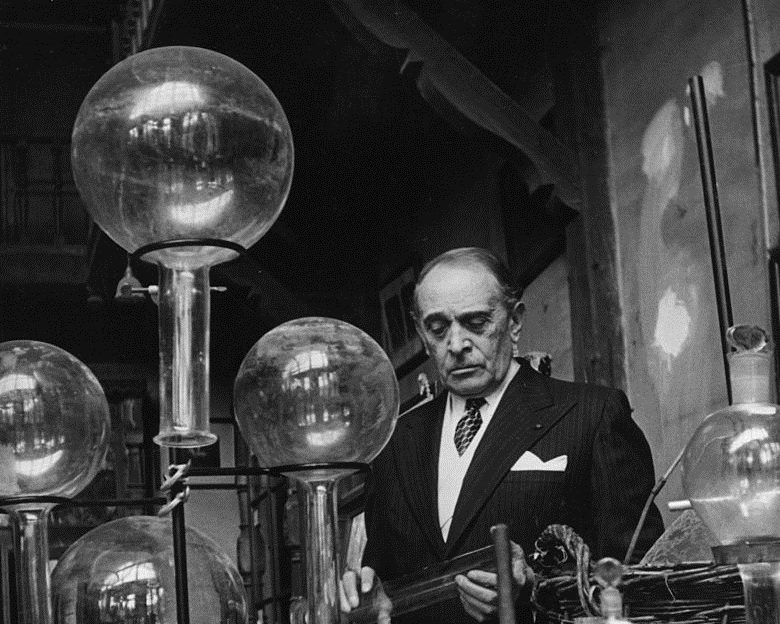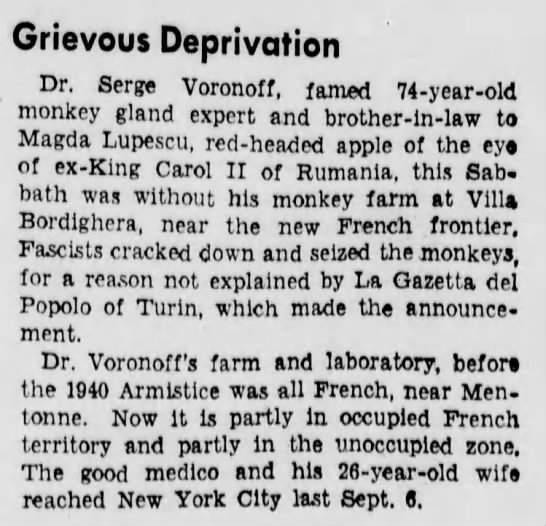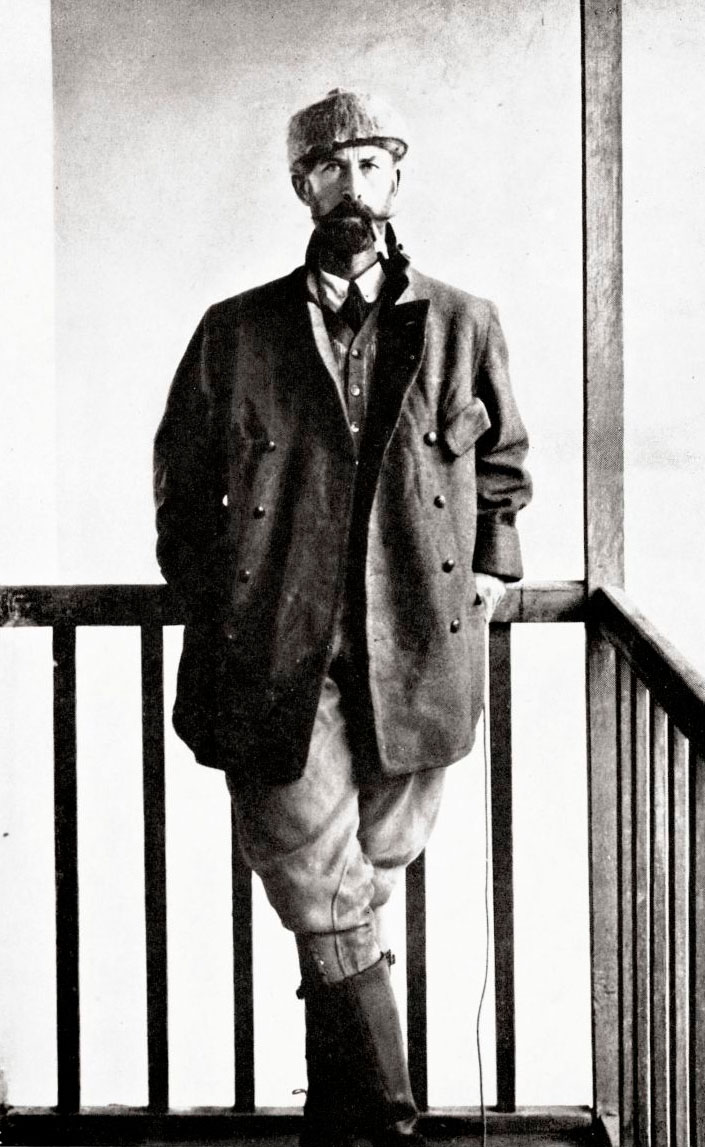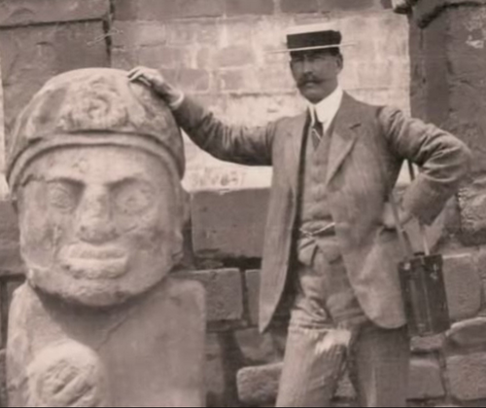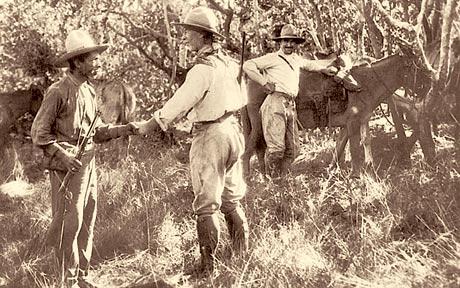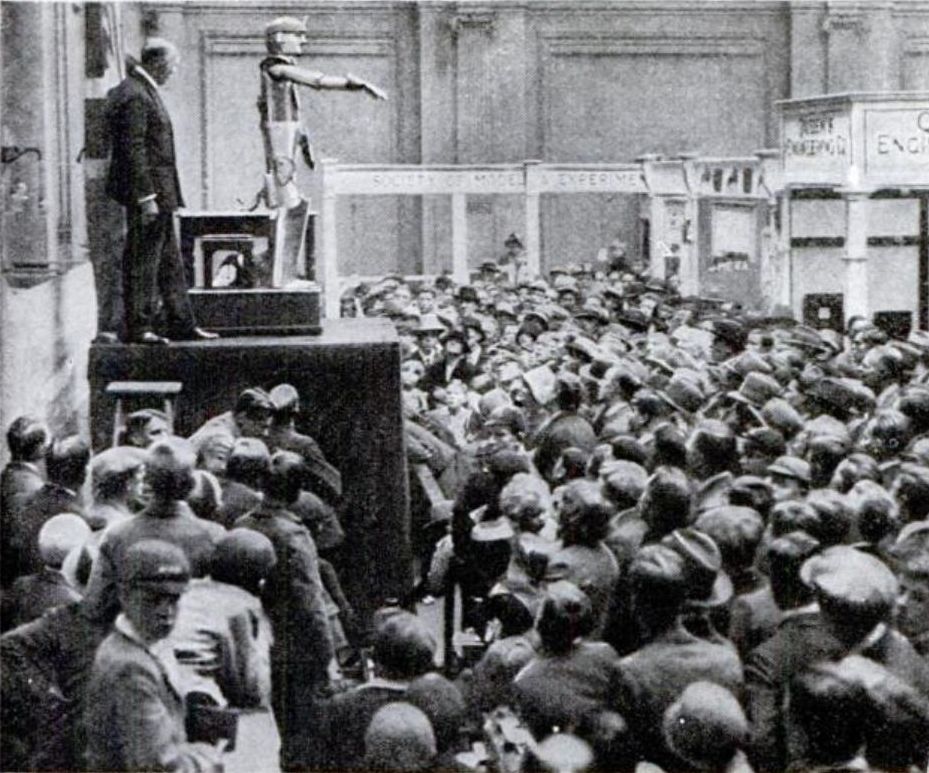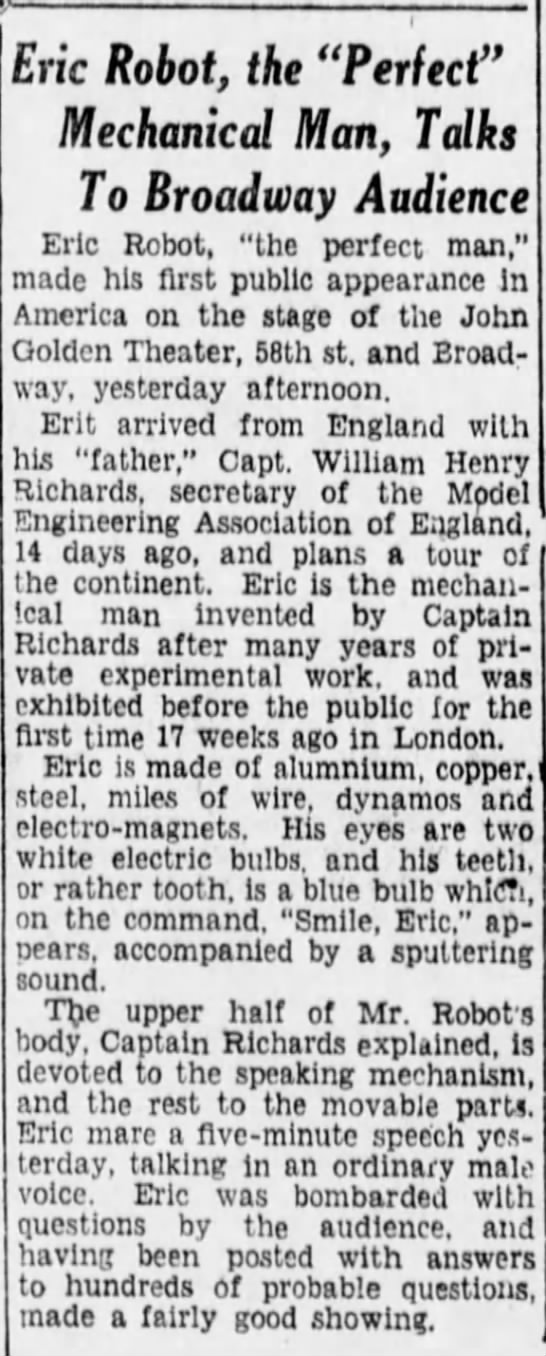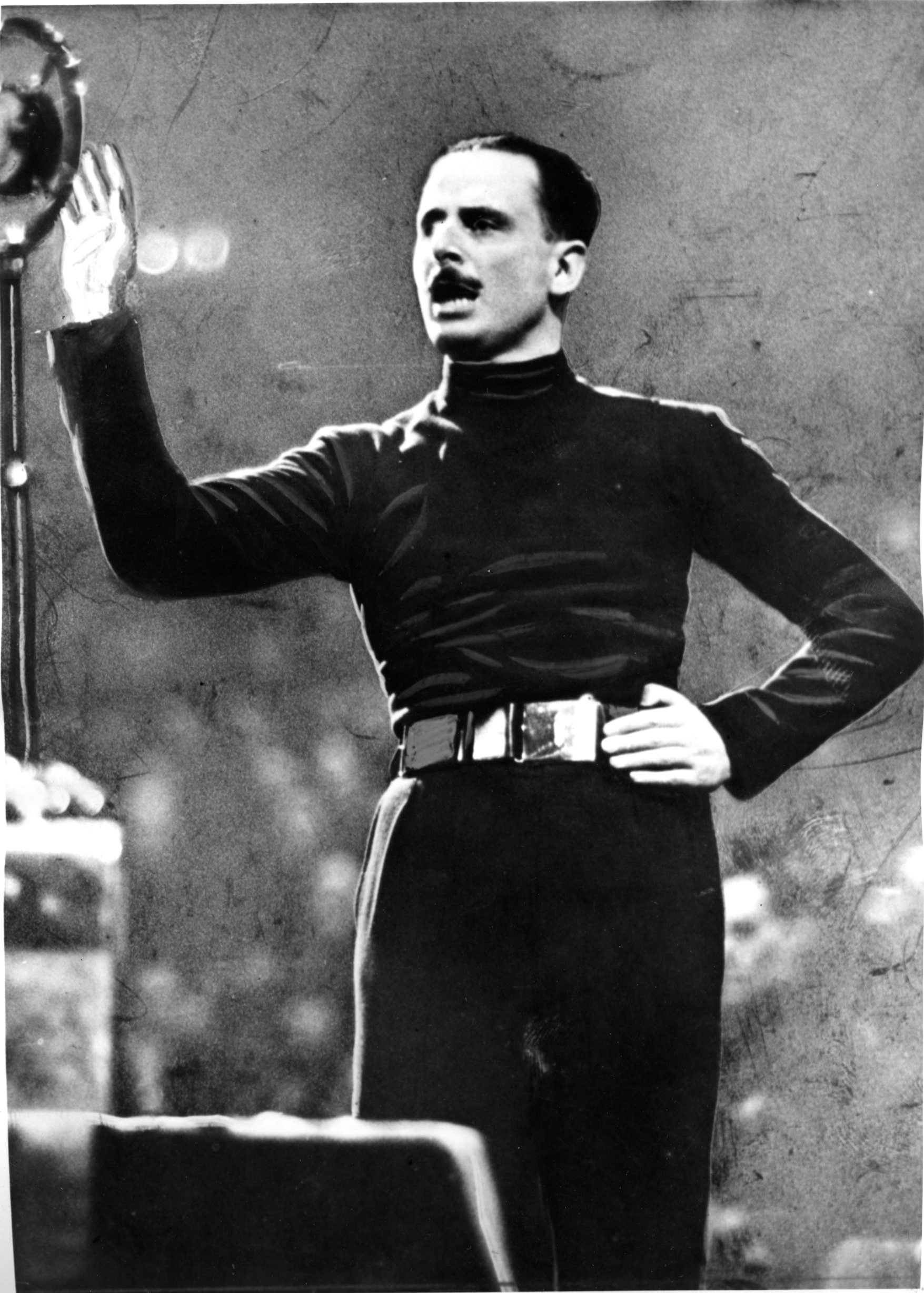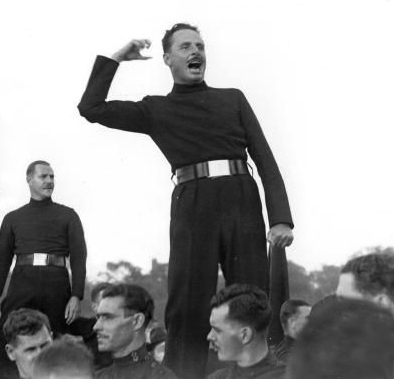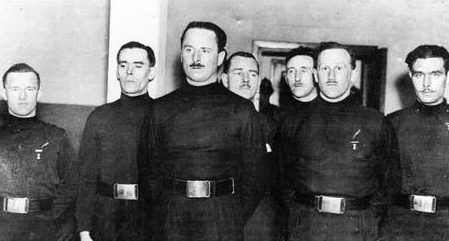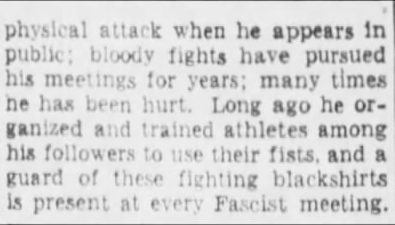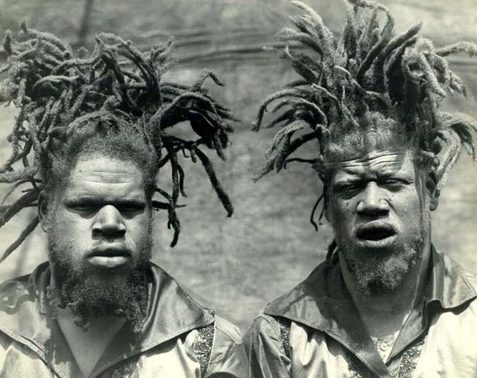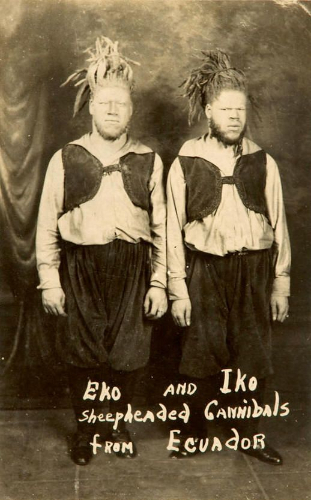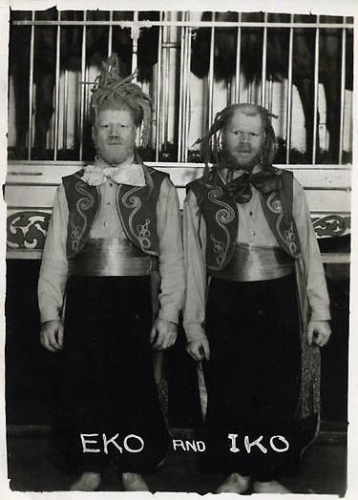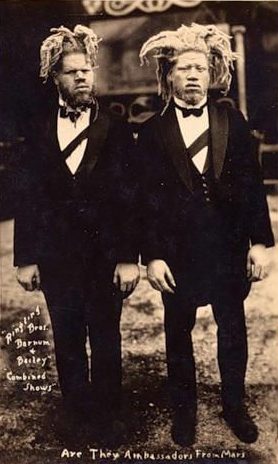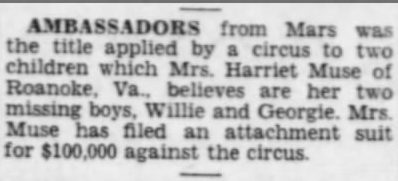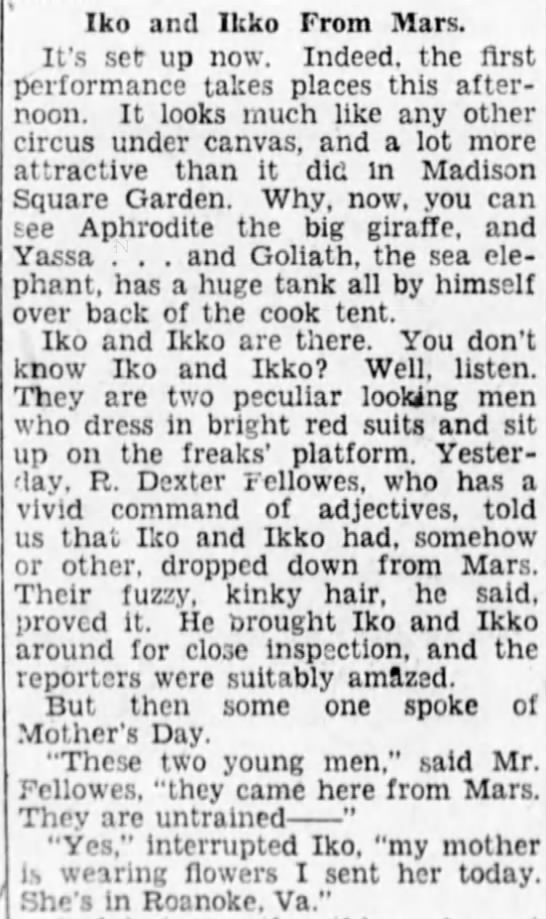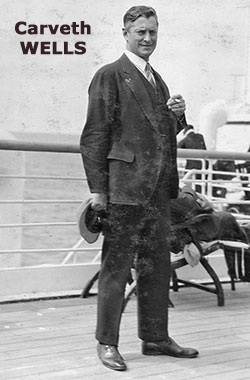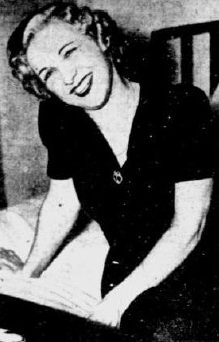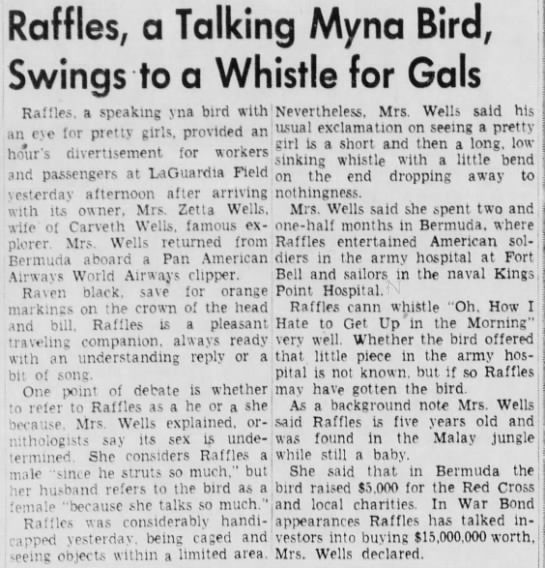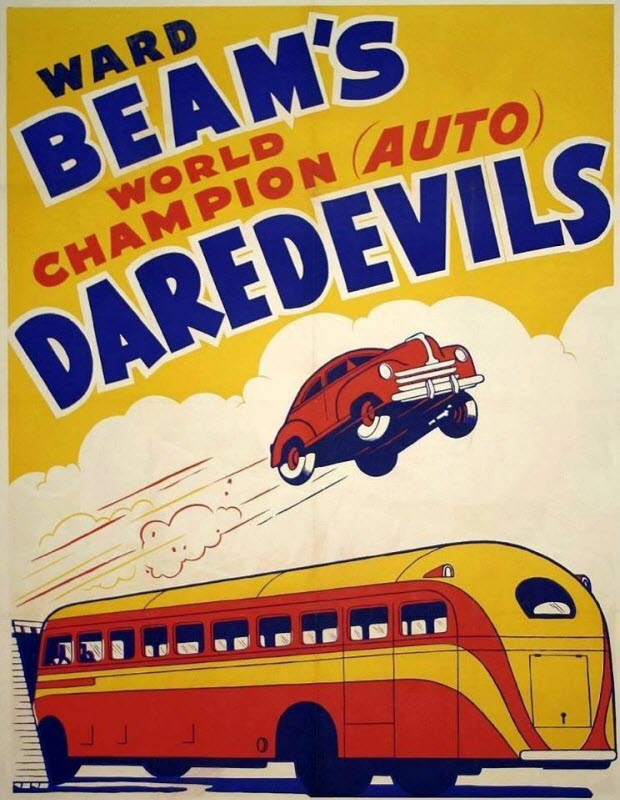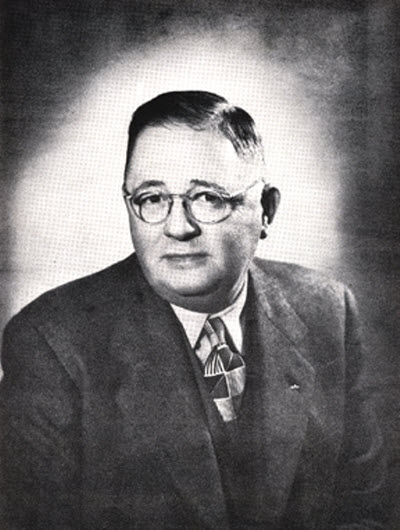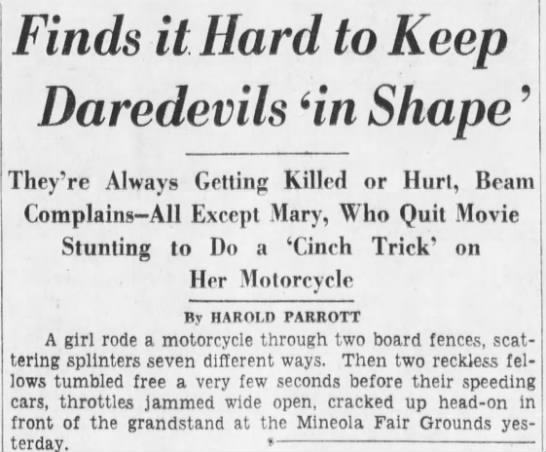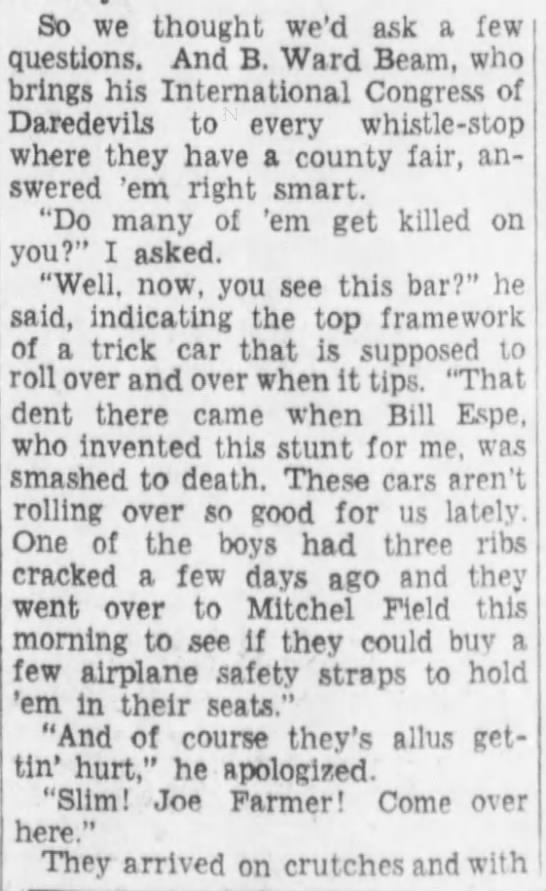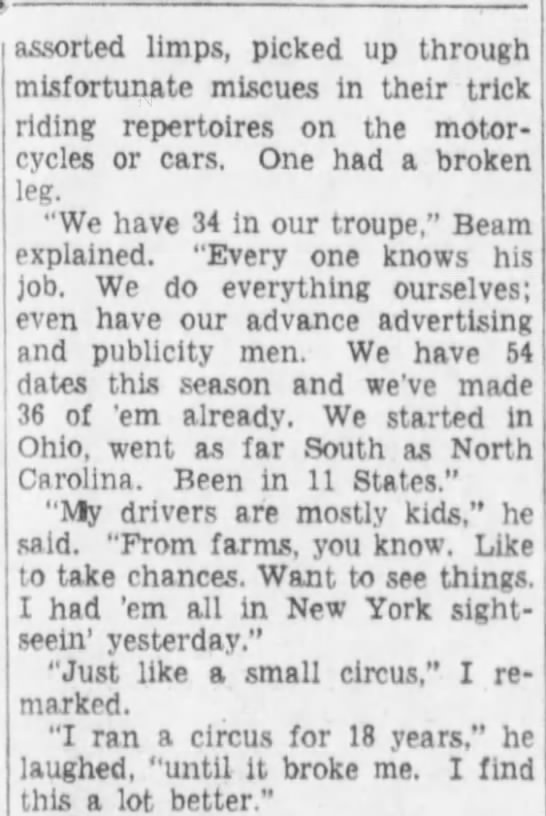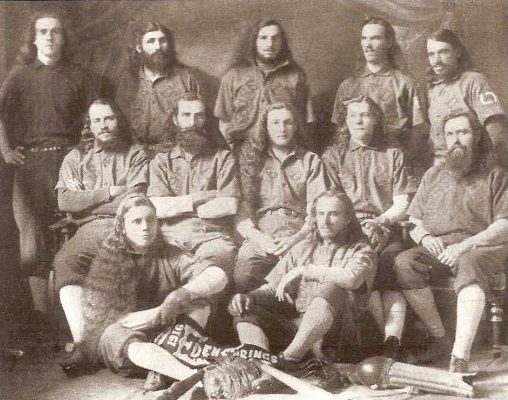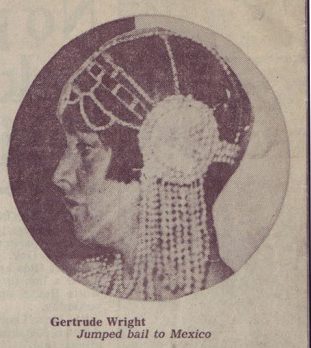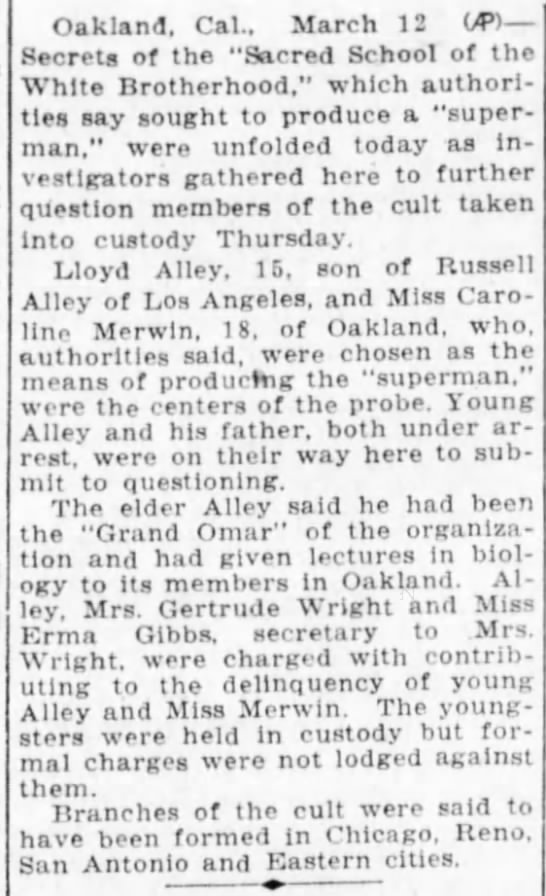From the May 1, 1945 Brooklyn Daily Eagle:
You are currently browsing the archive for the Photography category.
Tags: Benito Mussolini
Lady Gaga’s Super Bowl LI halftime performance was dubbed “apolitical” by many news outlets, though that’s an odd way to describe a singer interrupting Irving Berlin’s “God Bless America” for a blast of Woody Guthrie’s “This Land Is Your Land,” the latter being an angry retort to the former. From Murray Kempton in 1981:
Woody Guthrie had composed “This Land Is Your Land” as a bitter parody of “God Bless America.” It had originally closed with the stanza:
One bright sunny morning in the shadow of the steeple
By the Relief office I saw my people
As they stood hungry, I stood there wondering if
God blessed America for me.•• • •
The Dustbowl was central to the songwriter’s sardonic bite, but Guthrie had some dalliances with the un-Oklahoma of New York City beginning in 1940, which resulted in the two articles below published in the Brooklyn Daily Eagle. The first looks at Guthrie’s involvement in It’s All Yours, an anti-Fascist, anti-Hitler musical drama performed in 1942 at the Brooklyn Academy of Music. It was co-directed by singer-songwriter Earl Robinson as the piece says, but what goes unmentioned is that the other director was Nicholas Ray, who would begin his big-time Hollywood career a half-dozen years later. In the second article, Guthrie brings his dirty boots to the home of etiquette expert (and erstwhile Staten Island Advance reporter) Amy Vanderbilt to celebrate the publication of Bound For Glory. As Charles B. Driscoll writes in the second piece: “Woody isn’t Phi Beta Kappa, but he knows a lot that they don’t teach in schools.”
___________________________
From October 5, 1942:
___________________________
From April 5, 1943:
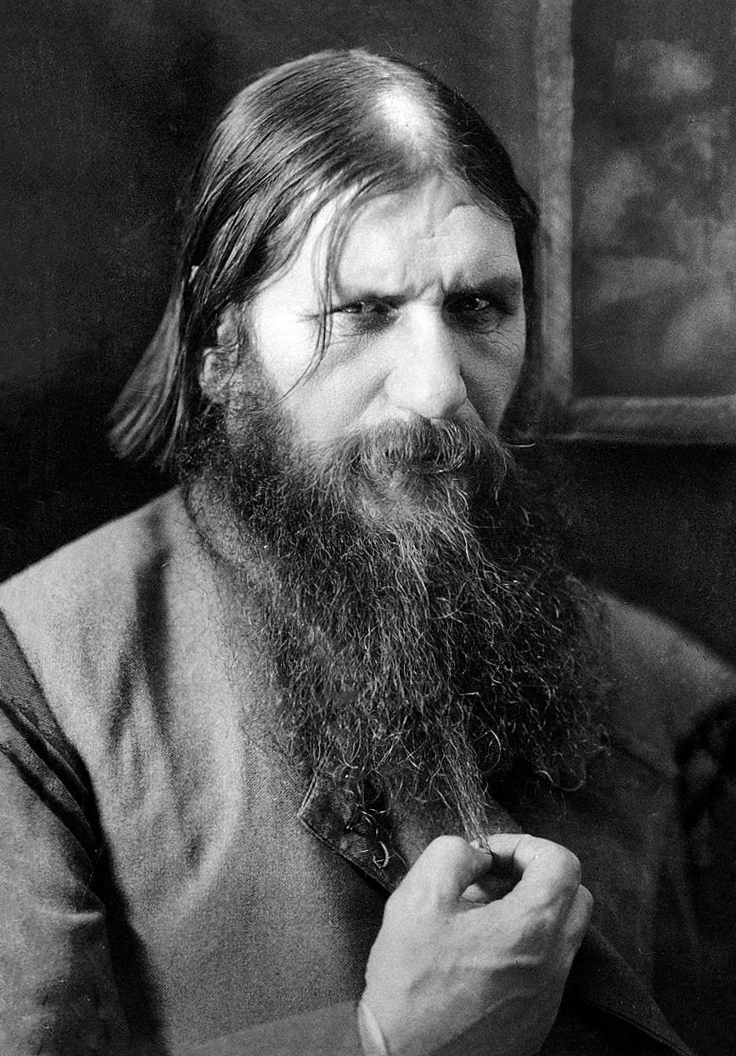 Steve Bannon has been deemed by some “Trump’s Rasputin,” but it’s not nice to besmirch Rasputin that way.
Steve Bannon has been deemed by some “Trump’s Rasputin,” but it’s not nice to besmirch Rasputin that way.
The inscrutable Siberian spiritualist was so wrapped in the cloth of mysticism that it’s impossible to know exactly how much influence he wielded in the palace of Nicholas II and Alexandra Feodorovna during the last days of disco for the Russian Empire. His sway may have actually registered somewhere between Bannon’s puppet-master position and Joan Quigley’s Reagan Era stargazing.
Regardless, the “mad monk” of St. Petersburg society made the people uneasy and the perception of him as “Chief Strategist” became a liability to the throne, so much so that his 1916 assassination was thought necessary by some royals if the Tsardom was to be salvaged. No dice, as the messy murder did not come close to halting the sweep of history.
A report from the March 1, 1914 Brooklyn Daily Eagle about the unlikely rise to power of the “crude impostor.”
Tags: Grigori Rasputin
Like many who’ve read Philip Roth’s The Plot Against America, I’ve been reflecting a lot on the novel during this terrible time of a demagogue reaching the White House. The writer imagined an alternative history in which the legendary aviator Charles Lindbergh, an actual spokesperson for the America First Committee and admitted white supremacist, was able to defeat Franklin Delano Roosevelt for the Presidency, changing the course of history for much the worse. It seems to have unfortunate parallels with our own bleak moment.
Roth doesn’t exactly see it that way, however. In an email exchange with Judith Thurman of the New Yorker, he explained the key difference:
“It is easier to comprehend the election of an imaginary President like Charles Lindbergh than an actual President like Donald Trump. Lindbergh, despite his Nazi sympathies and racist proclivities, was a great aviation hero who had displayed tremendous physical courage and aeronautical genius in crossing the Atlantic in 1927. He had character and he had substance and, along with Henry Ford, was, worldwide, the most famous American of his day. Trump is just a con artist.”
Yes, that’s true, Trump is merely a Simon Cowell-ish strongman, not a real-life superhero whose daring made the world smaller when foreign acres of the Earth still felt as distant as the dark side of the moon. But the book’s sense of foreboding, the feeling that we’ve drifted far and disastrously from our ideals, definitely resonates.
An article in the April 28, 1941 Brooklyn Daily Eagle reported on Lindbergh’s abrupt resignation from his Army post in response to Roosevelt’s criticism of the flier’s speeches, in which he urged American isolationism, a belief which was fortified by his appreciation for Aryan superiority and feelings of anti-Semitism.
Tags: Charles A. Lindbergh, Donald Trump, Franklin Delano Roosevelt, Judith Thurman, Philip Roth
For J. Robert Oppenheimer, science was a series of trials.
The father of the atomic bomb, the theoretical physicist was never to be sainted like Albert Einstein. It’s possible (likely, even) the weapon actually saved lives during World War II, abbreviating the fighting by forcing Japan to surrender, but the unholy power released brought to mind the content of the first piece of Morse code ever sent: “What hath God wrought.”
Publishing a post about Richard Feynman the other day reminded me about his mentor’s literal trial during the McCarthy era, when Oppenheimer was accused of being a Communist sympathizer willing to secret nuclear knowledge to the Soviets. The scientist had been under surveillance by J. Edgar Hoover’s FBI since the 1940s, with his phones tapped and office bugged, and in the following decade his security clearance was surprisingly revoked.
Oppenheimer certainly worked with and knew members of the Communist Party (his wife was one), but that wasn’t unusual in those days. The governmental action seems to have had less to do with fears of espionage than with witch-hunt hysteria and a power struggle among politicians and competing scientists, particularly his erstwhile friend Edward Teller. Oppenheimer fought his loss of credentials to no avail in a four-week trial, emerging with a reputation permanently reduced.
Two articles about the matter from the April 13, 1954 Brooklyn Daily Eagle, the first about the suspension of clearance and the second a piece in which Einstein voiced support for Oppenheimer.
Edward R. Murrow interviews an understandably shaky Oppenheimer in the year after his trial. Under his direction, the Institute for Advanced Study in Princeton wasn’t only home to some of the finest young physicists in the world but also served as a salon of sorts to broaden the students’ thinking. T.S. Eliot, George Kennan and Jean Piaget were among the visitors who stayed for a spell. The university considered removing Oppenheimer from his post after the Communist controversy, but he ultimately retained his position until his death by cancer in 1967.
Tags: J. Robert Oppenheimer
 As the Obama Presidency comes to a close, let’s remember for a moment one example of the ridiculous double standard he often faced, a criticism lodged in 2014 by Bill O’Reilly, who recently had sexual harassment allegations against him settled by Fox.
As the Obama Presidency comes to a close, let’s remember for a moment one example of the ridiculous double standard he often faced, a criticism lodged in 2014 by Bill O’Reilly, who recently had sexual harassment allegations against him settled by Fox.
When the President went on Zach Galifianakis’ faux talk show “Between Two Ferns” to promote enrollment in Obamacare, legislation that has improved the lives of millions of Americans and created many well-paying jobs, O’Reilly accused Obama of besmirching the honor of the White House, declaring that “Abe Lincoln would not have done it.”
But the fake-news host was happy during this election to throw his support behind a Reality TV buffoon and sexual predator who made fun of disabled people and our POWs. Imagine what he would have said about Obama if he’d fit any of those descriptions.
Additionally, O’Reilly’s claim about Lincoln couldn’t have been more inaccurate based on history. Honest Abe was a wonderful Commander-in-Chief who happened to have some deeply gross habits.
Excerpts about some of those peculiar behaviors from Carl Sandburg’s Abraham Lincoln: The Prairie Years:
Judged cockfights:
The Clary’s Grove boys called on [Lincoln] sometimes to judge their horse races and cockfights, umpire their matches and settle disputes. One story ran that Lincoln was on hand one day when an old man had agreed, for a gallon jug of whisky, to be rolled down a hill in a barrel. And Lincoln talked and laughed them out of doing it. He wasn’t there on the day, as D.W Burner told it, when the gang took an old man with a wooden leg, built a fire around the wooden leg, and held the man down until the wooden leg was burned off.
Wrestled for the entertainment of knife-wielding gamblers:
Offut talked big about Lincoln as a wrestler, and Bill Clary, who ran a saloon thirty steps north of the Offut store, bet Offut that Lincoln couldn’t throw Jack Armstrong, the Clary’s Grove champion. Sports from miles around came to a level square next to Offut’s store to see the match; bets of money, knives, trinkets, tobacco, drinks were put up, Armstrong, short and powerful, aimed from the first to get in close to his man and use his thick muscular strength. Lincoln held him off with long arms, wore down his strength, got him out of breath, surprised and “rattled.” They pawed and clutched in many holds and twists till Lincoln threw Armstrong and had both shoulders to the grass.
Drank whiskey from bungholes:
When a small gambler tricked Bill Greene, Lincoln’s helper at the store, Lincoln told Bill to bet him the best fur hat in the store that he [Lincoln] could lift a barrel of whisky from the floor and hold it while he took a drink from the bunghole. Bill hunted up the gambler and made the bet. Lincoln sat squatting on the floor, lifted the barrel, rolled it on his knees till the bunghole reached his mouth, took a mouthful, let the barrel down–and stood up and spat out the whisky.
Pressed barefoot boys’ muddy soles to the ceiling:
He put barefoot boys to wading in a mud puddle near the home trough, pulled them up one by one, carried them to the house upside down, and walked their muddy feet across the ceiling. The stepmother came in, laughed at their foot tracks, told Abe he ought to be spanked–and he cleaned the ceiling so that it looked new.•
Jean-Martin Charcot believed there was an underlying problem. In the big picture, he was right.
The 19th-century physician, considered the “father of neurology,” was pivotal in the understanding of ALS, Parkinson’s and other physical ailments, but it was his focus on neuroses that probably had the greatest impact on the world, through his own efforts and by those of his students.
In James Strachey’s introduction to a 1989 edition of Civilization and Its Discontents, he wrote:
Before his marriage, from October 1885 to February 1886, Freud worked in Paris with the celebrated neurologist Jean-Martin Charcot, who impressed Freud with his bold advocacy of hypnosis as an instrument for healing medical disorders, and no less bold championship of the thesis (then quite unfashionable) that hysteria is an ailment to which men are susceptible no less than women. Charcot, an unrivaled observer, stimulated Freud’s growing interest in the theoretical and therapeutic aspects of mental healing. Nervous ailments became Freud’s specialty, and in the 1890s, as he told a friend, psychology became his tyrant. During these years he founded the psychoanalytic theory of mind.
It’s easy to look askance at Charcot’s dubious reliance on hypnosis (even he eventually thought he overdid it) or Freud’s promotion of cocaine, but they were at that point essentially working in darkness, in possession of a few clues and searching for methods.
Charcot’s death was recorded in a September 10, 1893 article by Emma Bullet, Paris Correspondent of the Brooklyn Eagle. It includes a piece from an odd interview in which the doctor was asked if bicycling (which had only recently boomed in popularity) was healthy or injurious.
Tags: William Ockelford Oldman
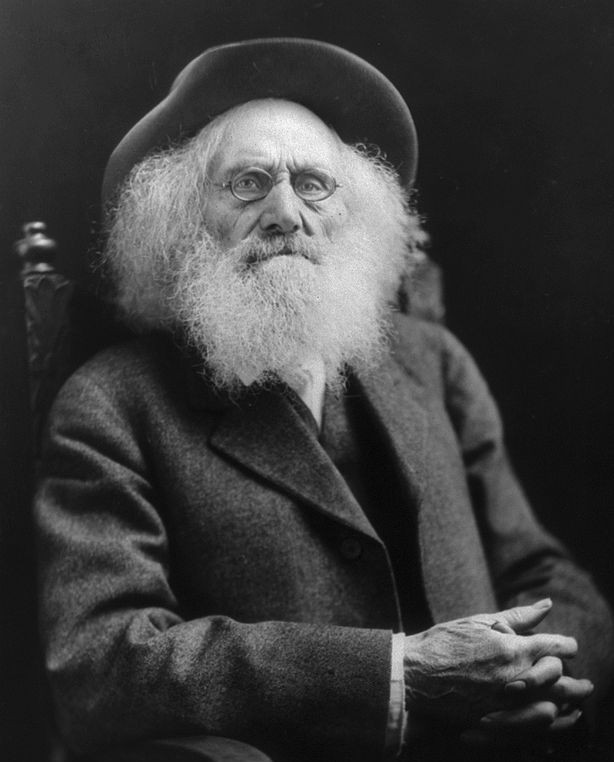
Evan Meeker, 1921.
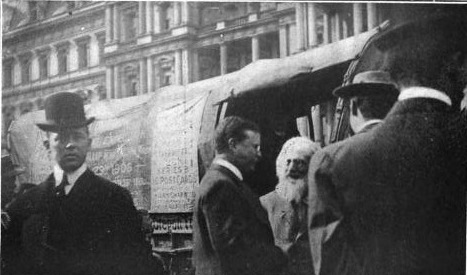
Showing his wagon to President Theodore Roosevelt, 1908.
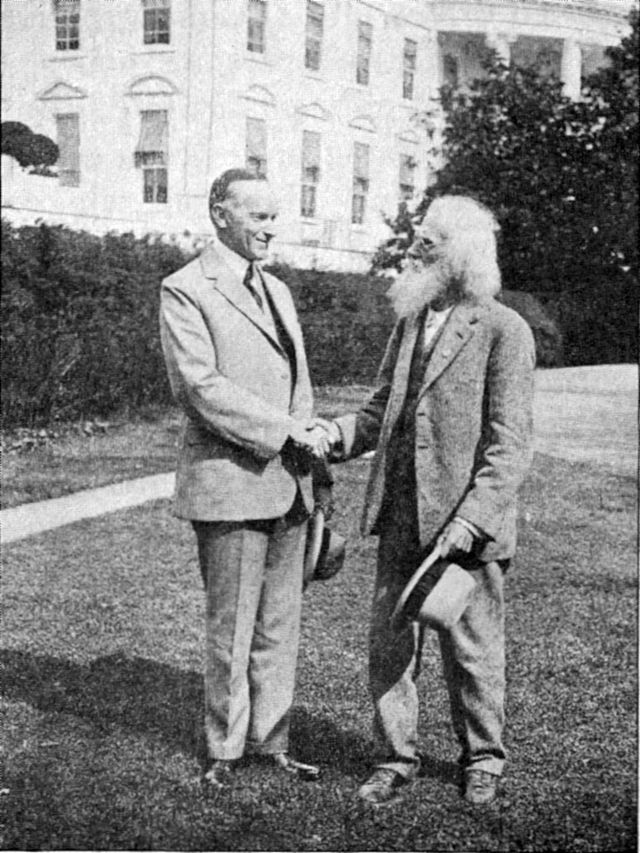
Meeting President Calvin Coolidge, 1924.
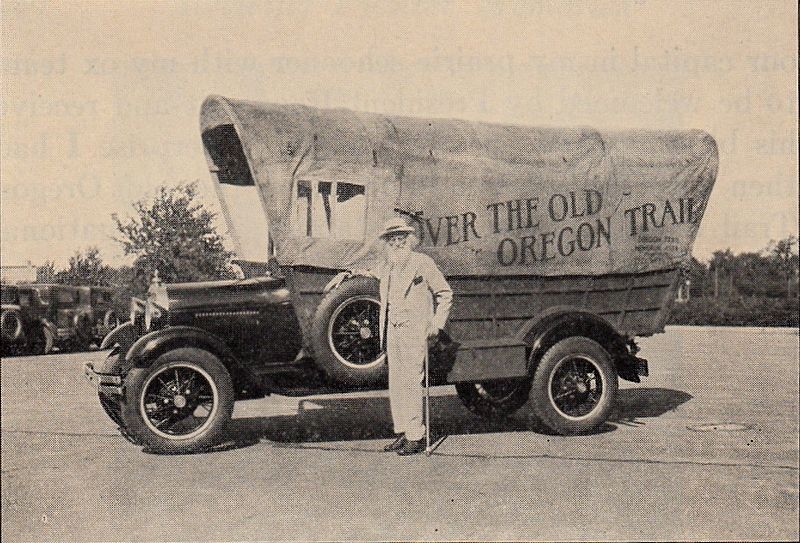
Evan Meeker, Detroit, 1928, last photo.
When Ezra Meeker passed away just over 88 years ago, he took with him a lot of institutional memory–and the institution was America.
A pioneer who traveled the Oregon trail in his youth in 1852 just before ferries and steamships thinned the herd moving west by cart and covered wagon, Meeker spent much of his dotage trying to ensure history would remember those who endured such treacherous crossings to open up the country. He wasn’t exactly a reenactor even if he always retained the raggedness of a pioneer and retraced the trip numerous times by ox-driven cart in the first decades of the twentieth century. Meeker was more a sort of traveling salesman, peddling a fascinating period of our history to Presidents and the public alike, not for personal gain but for posterity, urging the establishment of monuments to this epoch.
It’s important to note that in the big picture Manifest Destiny was a tragedy for Native peoples, though Meeker himself enjoyed a particularly good relationship with Indians, as they were then called, collaborating and trading rather than fighting. If only we’d followed that example.
An article announced the passing of Meeker’s own monumental presence in the December 3, 1928 Brooklyn Daily Eagle.
Tags: Salvador Dali
Much of Sven Hedin’s life was lived in public, but the truth about him is somewhat buried nonetheless, strange for a Swedish explorer who spent his life unearthing the hidden. His expeditions to Central Asia just before and after beginning of the twentieth century introduced the world to invaluable art and artifacts and folkways and cities that had been lost to time.
Hedin was admired for these efforts in all corners of the world, including the one occupied by Adolf Hitler. The geographer perplexingly returned the Führer’s admiration, believing in the Nazi leader’s nationalistic and traditionalist tendencies, which was obviously a catastrophic misjudgement. He was highly critical, however, of the Party’s anti-Semitism.
These protests brought trouble. Hitler seems to have blackmailed the famed explorer into publishing pro-Nazi tracts by imperiling some of Hedin’s Jewish friends still inside Germany. But it’s difficult to accept that Hedin encouraged Sweden to ally with Germany during WWII to save a few friends or even that he truly believed he could somehow compartmentalize various aspects of the uniformly deviant Third Reich. He just apparently didn’t want to recognize the evil. A disease of the eye caused Hedin to become partially blind in 1940, an apt metaphor for this period of his life.
Long before his political descent, Hedin penned an article for Harper’s about an unusual Tibetan custom in which monks passed their lives in subterranean isolation, a piece reprinted in the September 17, 1908 Brooklyn Daily Eagle.
Charles “Chuck” Connors was full of life, and other stuff.
The so-called “Mayor of Chinatown” was an Irishman dubbed “Insect” by his neighbors until his penchant for cooking chuck steaks over open fires in the streets earned him a new nickname. An inveterate self-promoter, he was a tour guide, vaudevillian, boxer, bouncer and raconteur. Some of his stories were even true.
One that wasn’t: For a fee, he showed tourists “authentic” Chinatown opium dens, which were often merely apartments he rented and filled with “extras” paid to pretend to be dragon chasers. The crafty man realized that narratives about urban blight, told just so, could be commodified.
Although he initially wasn’t so appreciated by his Chinese neighbors, Connors eventually earned their esteem and his blarney was sadly missed when it was permanently silenced. An article in the May 10, 1913 Brooklyn Daily Eagle announced his death.
Famed attorney Clarence Darrow was an extremist when it came to criminality, believing in circumstance but not culpability. He saw law breakers the way the writer of a naturalist novel views characters, as prisoners of nature and nurture, incapable of circumventing either. Based on the remarks he made as reported in an article in the April 4, 1931 Brooklyn Daily Eagle, Darrow would have treated all misdeeds as maladies, the perpetrators receiving treatment in hospitals rather than stretches in prison.
In a way, his contention has returned to vogue today thanks mainly not to philosophy but to science, with some neuroresearchers believing our brains, a conductor of algorithms of sorts, governing us rather than the other way around. From Yuval Noah Harari’s Home Deus:
Yet humanism is now facing an existential challenge and the idea of “free will” is under threat. Scientific insights into the way our brains and bodies work suggest that our feelings are not some uniquely human spiritual quality. Rather, they are biochemical mechanisms that all mammals and birds use in order to make decisions by quickly calculating probabilities of survival and reproduction.
Like most people I think the hardware that enables my consciousness allows me a range within which I can make decisions, but maybe my brain is just telling me that?
I can’t say the Russo-French “gland expert” Serge Voronoff was doing God’s work. The surgeon believed grafting monkey testicle tissue onto the testicles of men increased strength and improved appearance. He experimented with numerous other animals, believing, for example, that bull glands might contain the fountain of youth. He was a well-educated and respectable crackpot, lauded as a genius for the majority of the Twenties and Thirties, before being lowered abruptly from his pedestal.
The first two brief articles below from the Brooklyn Daily Eagle report on Voronoff while he was still widely respected, while the third shows him caught up in the sweep of history, forced in 1941 to leave behind his beloved monkey farm in France to flee fascists, who seized the primates.
From July 13, 1924:
From September 23, 1936:
From February 2, 1941:
Explorer Percy Fawcett vanished for good in 1925 while searching for a lost ancient city he named “Z,” but his aggrieved wife kept hanging on his every word.
Mrs. Fawcett (née Nina Agnes Paterson) seems to have fallen prey to some hucksters while in an understandably weakened state of mind, because she came to believe her missing husband was talking to her telepathically through several mediums. It’s also possible her beliefs were influenced by a close friendship with Sir Arthur Conan Dole and Lady Doyle, two devotees of such hokum. Regardless of how the situation came to be, the “intel” convinced her to refuse widowhood, convinced the family would soon be reunited. A February 12, 1928 article in the Brooklyn Daily Eagle recalls the strange footnote.
Tags: Percy Fawcett
Robots seem to have been capable of offering rudimentary salutations to Madison Square Garden conventioneers more than eight decades ago, but a Broadway speech and Q&A in the Roaring Twenties by a robot named Eric may not have been entirely legit. The bucket of bolts could certainly gesture and nod, but his “voice” may have come from an offstage confederate via remote wireless, though no such possibility was entertained in a report about the unusual stage debut in the January 20, 1929 Brooklyn Daily Eagle. The story:
Oswald Mosley, the infamous founding leader of the British Union of Fascists during the 1930s, was the inspiration for “Mr. Oswald” in Elvis Costello’s 1977 “Less Than Zero,” maybe the single most scathing and slanderous song ever recorded. An economist-cum-aspiring-autocrat, Mosley was a vicious anti-Semite and xenophobe who managed to incite violence almost anywhere he went. He was in prison and then house arrest during the latter years of WWII, returning to politics in the ’50s and 60’s as a candidate for Parliament on anti-immigration platforms. Mosley never came close to winning office and died in France in 1980, three years after the Costello excoriation.
A November 8, 1936 Brooklyn Daily Eagle report profiled Mosley at the height of his madness.
In 1967, David Front interviewed Oswald, who was then in his dotage.
Tags: Oswald Mosley
Tags: William Bushnell Stout
It didn’t begin auspiciously for George and Willie Muse, born black, poor and albino to a sharecropper family in the Jim Crow South. It seemed to get even less promising when they were kidnapped in 1899 from their doting mother in Virginia and forced to appear in itinerant freak shows as “Eko and Iko, sheep-headed, cannibalistic Ambassadors from Mars.”
The siblings were given room, board and mandolin lessons by a parade of handlers but were otherwise kept a safe distance from their earnings. Ultimately, their mother reclaimed them 28 years later through the legal system, liberating her boys who then signed a deal with Ringling Brothers that allowed them to retain complete rights to their merchandising. The two grew quite well-off, selling out Madison Square Garden numerous times and performing for the Queen of England. They were international superstars in an era before mass media. One brother, Willie, lived to 108, dying in 2001, having left a footprint in three centuries.
It’s likely a wilder tale than that of any sideshow act from the twentieth century, more than Chang & Eng or the “Two-Headed Nightingale” or anyone. In Truevine, a book by Beth Macy published last month, the author ponders the troubling question of whether the kidnapping and sideshow existence were ultimately better for the Muses than the privations and prejudices of the South would have been. Perhaps, though clearly neither was ideal. Reports are Paramount is angling to acquire big-screen rights to the book.
Two Brooklyn Daily Eagle articles are embedded below, the first documenting their mother first finding her sons after a nearly three-decade search, and the second revealing the men’s intelligence, which belied how the circus presented them to the public.
From October 20, 1927:
From May 14. 1928:
Tags: Beth Macy, George Muse, Harriet Muse, Willie Muse
Before the village became global, husband-and-wife explorers Carveth and Zetta Wells used new media and old-fashioned derring-do to make the world a little smaller.
The microphone- and camera-ready couple were lecturers and media personalities in between jaunts to exotic locales, with Zetta even hosting a weekly NBC show in 1946-47, in which she introduced 16mm home movies of their travels. It was an intoxicating time of visiting boat builders living inside volcanoes, watching fish climb trees and chaperoning Raffles the Mynah bird to an appearance on You Bet Your Life.
Below are two Brooklyn Daily Eagle articles about the peripatetic pair and the aforementioned 1957 video of Groucho Marx getting the business from a boid.
From July 18, 1929.
From August 12, 1945,
At the 6:50 mark.
Tags: Carveth Wells, Groucho Marx, Zetta Wells
Tags: B. Ward Beam, Bill Espe, Joe Farmer, Slim
The “Sacred School of the White Brotherhood” sounds like an offshoot of the Ku Klux Klan, but it was actually a 1920s cult–perhaps a “pagan love cult”–dedicated to racial peace, among other things, that had branches in several American cities.
The organization ran afoul of the law when it was said to have endeavored to “breed a Superman” with the help of a Berkeley coed and a 15-year-old boy. The pre-hippie hangout located in Oakland was raided in ’27 on the orders of District Attorney Earl Warren, with officers arriving before a baby could be made.
Of course, a very public scandal ensued, especially since numerous civic and business leaders were said to be among the members. Gertrude Wright, the so-called “High Priestess” whose bungalow doubled as cult headquarters was among those who fled to Mexico to escape a possible jail sentence. An article about the brouhaha appeared in the March 12, 1927 Brooklyn Daily Eagle.
Tags: Earl Warren, Gertrude Wright

